Best smart scales 2026: Track body composition in the comfort of your home
Smart scales help you track your body fat percentage, bone density and muscle mass — these are the best models we recommend in 2026.
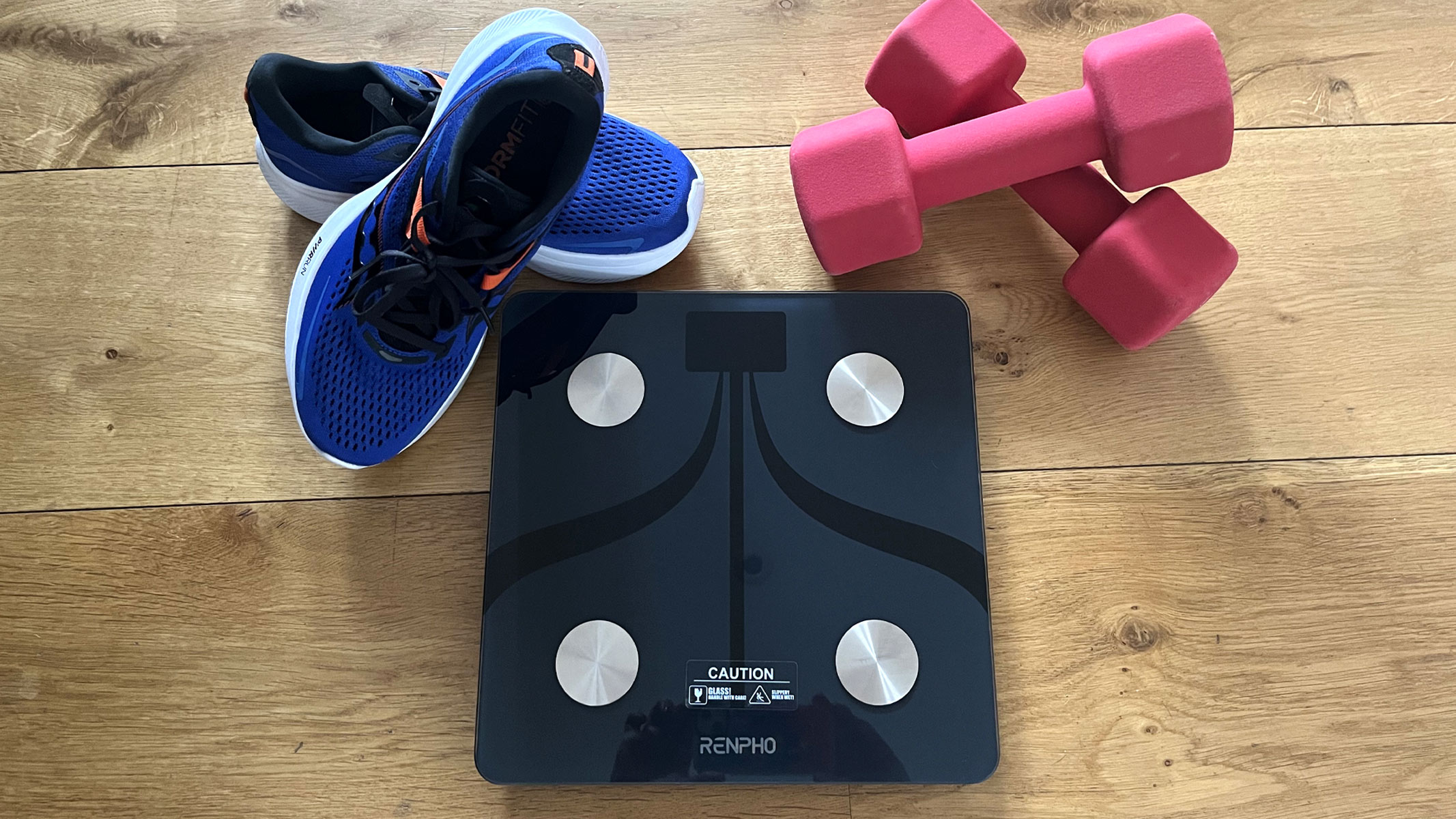
Get the world’s most fascinating discoveries delivered straight to your inbox.
You are now subscribed
Your newsletter sign-up was successful
Want to add more newsletters?

Delivered Daily
Daily Newsletter
Sign up for the latest discoveries, groundbreaking research and fascinating breakthroughs that impact you and the wider world direct to your inbox.

Once a week
Life's Little Mysteries
Feed your curiosity with an exclusive mystery every week, solved with science and delivered direct to your inbox before it's seen anywhere else.

Once a week
How It Works
Sign up to our free science & technology newsletter for your weekly fix of fascinating articles, quick quizzes, amazing images, and more

Delivered daily
Space.com Newsletter
Breaking space news, the latest updates on rocket launches, skywatching events and more!

Once a month
Watch This Space
Sign up to our monthly entertainment newsletter to keep up with all our coverage of the latest sci-fi and space movies, tv shows, games and books.

Once a week
Night Sky This Week
Discover this week's must-see night sky events, moon phases, and stunning astrophotos. Sign up for our skywatching newsletter and explore the universe with us!
Join the club
Get full access to premium articles, exclusive features and a growing list of member rewards.
With January sales in full swing, you could save yourself a few dollars on some of these best smart scales. While the Body Mass Index (BMI) is often used as an indicator of health, it only considers your height and weight. However, the best smart scales can give you a better insight into your overall health by considering your weight, muscle mass, bone density, body fat percentage and even your hydration status. Some devices can even measure your visceral fat, a type of fat that builds up around your organs, an excess of which can be a risk factor for chronic health conditions like heart disease and type 2 diabetes.
"Having a BMI of 30 or above, for example, usually means you are obese, but it is also possible to have a high BMI and a low body fat percentage. For example, a bodybuilder carrying a lot of muscle may have a high BMI because of how much their muscle mass weighs — but this does not necessarily mean that their body composition is unhealthy," Dr. Daniel Atkinson, a general practitioner and clinical lead at Treated, an online healthcare provider, told Live Science.
Indeed, smart scales can be useful in monitoring body composition. However, we should note that smart scales are not diagnostic devices. They are a guide only. Want to know more about the pros and cons of smart scales? Scroll down to the FAQs section for more information.
So, which model should you buy? To ensure you get the best value for your money, we have tried and tested some of the best smart scales on the market. We thoroughly assessed each model's design and functionality, then compared its measurements with the data we obtained with bigger, more precise BIA (bioimpedance analysis) machines. You can read more about our testing protocol in the How we test section below.
Want to monitor your fitness levels, too? Consider investing in one of the best fitness trackers to get detailed insights into your sleep, exercise and general fitness, which can complement the use of smart scales.
The quick list
See the quick list below for a brief overview of our favorite smart scales, or scroll further down for more detailed reviews of each device as well as other options we recommend.
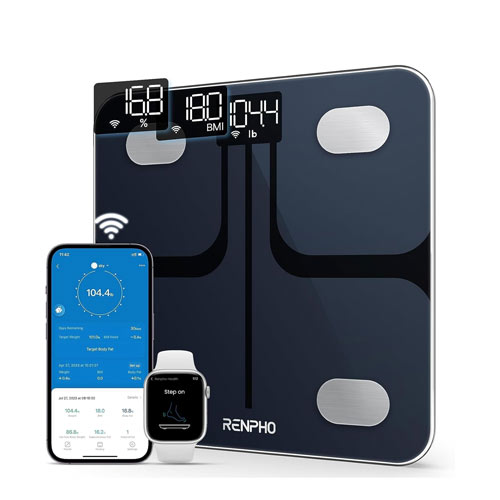
Best overall
We loved the Renpho smart scale. It is affordable, stylish and compatible with most major health apps, but more importantly, it was impressively accurate in our at-home tests. The fact that it is rechargeable was the icing on the cake.
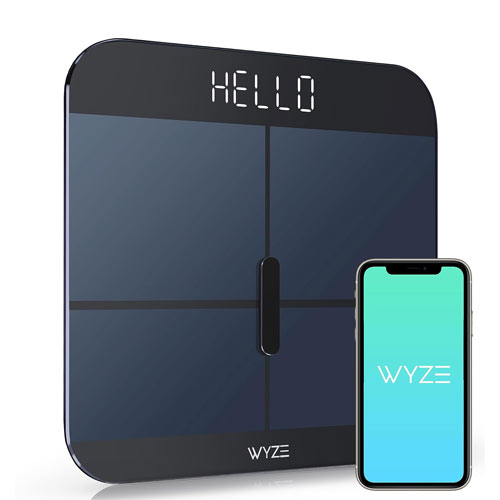
Best on a budget
The Wyze Scale X punches way above its affordable price point with its detailed assessments of body composition and heart rate. Plus, it features various weighing modes such as for luggage and pets, making it an excellent family-friendly option.
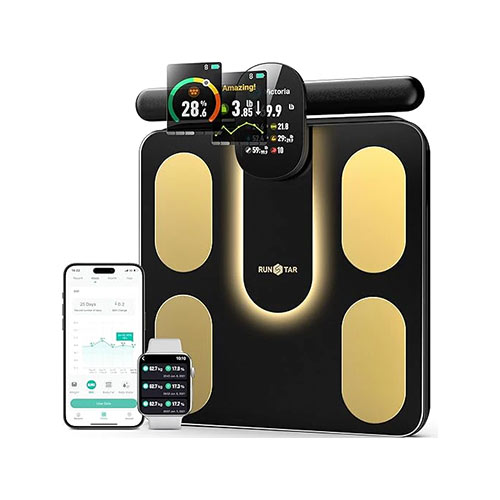
Best for accuracy
The only smart scale in this guide that uses foot-to-hand technology and provides segmental body analysis, the RunStar 8E SmartScan Pro thoroughly impressed us with its tracking accuracy and in-depth body composition measurements.
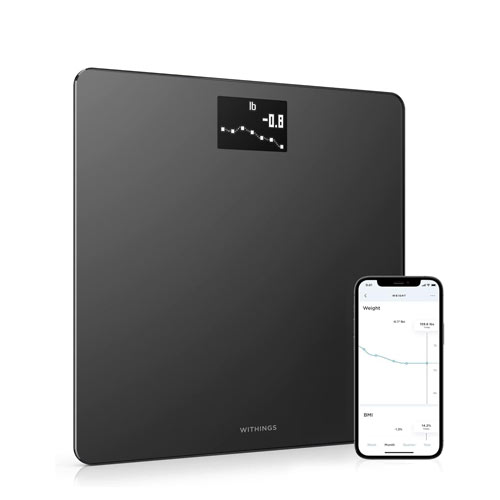
Best for large feet
The Withings Body smart scale was the largest scale we tried and tested offering a great surface for those with larger feet or balance problems. It is more basic than some of the other smart scales but still pairs with a number of major health apps.
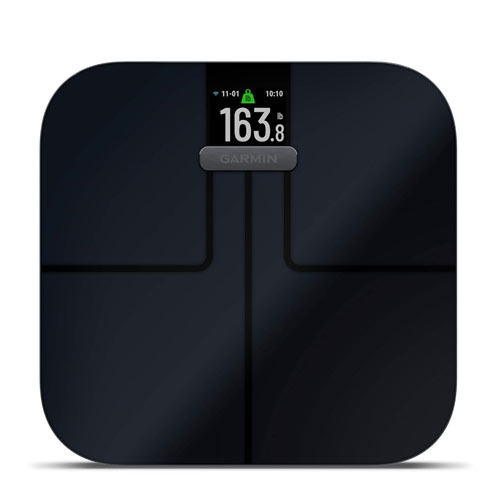
Best for athletes
The Index S2 has all the high-end specs you would expect from a Garmin device, and is the most accurate of all smart scales in this guide. The app is designed for multiple weigh-ins, making this an ideal choice for athletes.
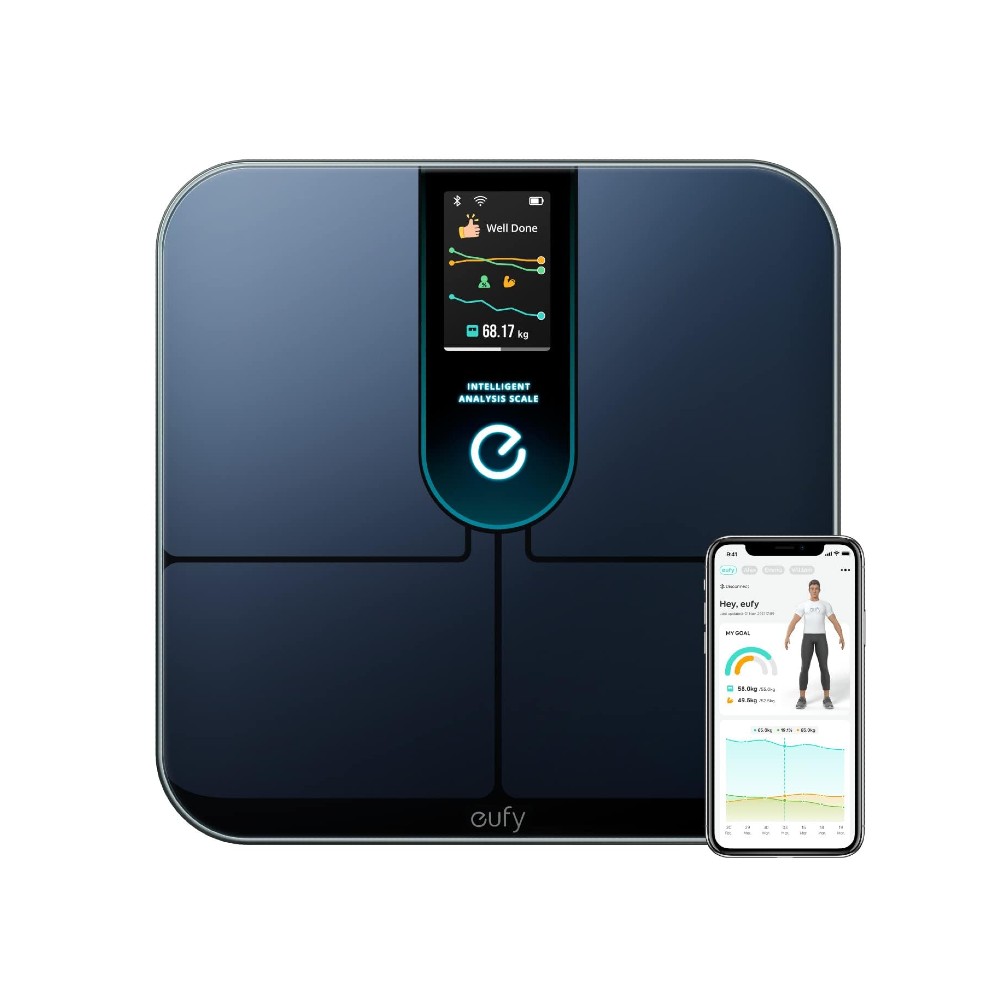
Best for personal trainers
The Eufy P3 has everything you may need to track your clients' progress, including unlimited user profiles, 16 body composition metrics, customized fitness plans and a beginner-friendly app. It looks good, too.
Best smart scales we recommend in 2026: From budget-friendly options to premium devices for athletes
Why you can trust Live Science
Best smart scale overall
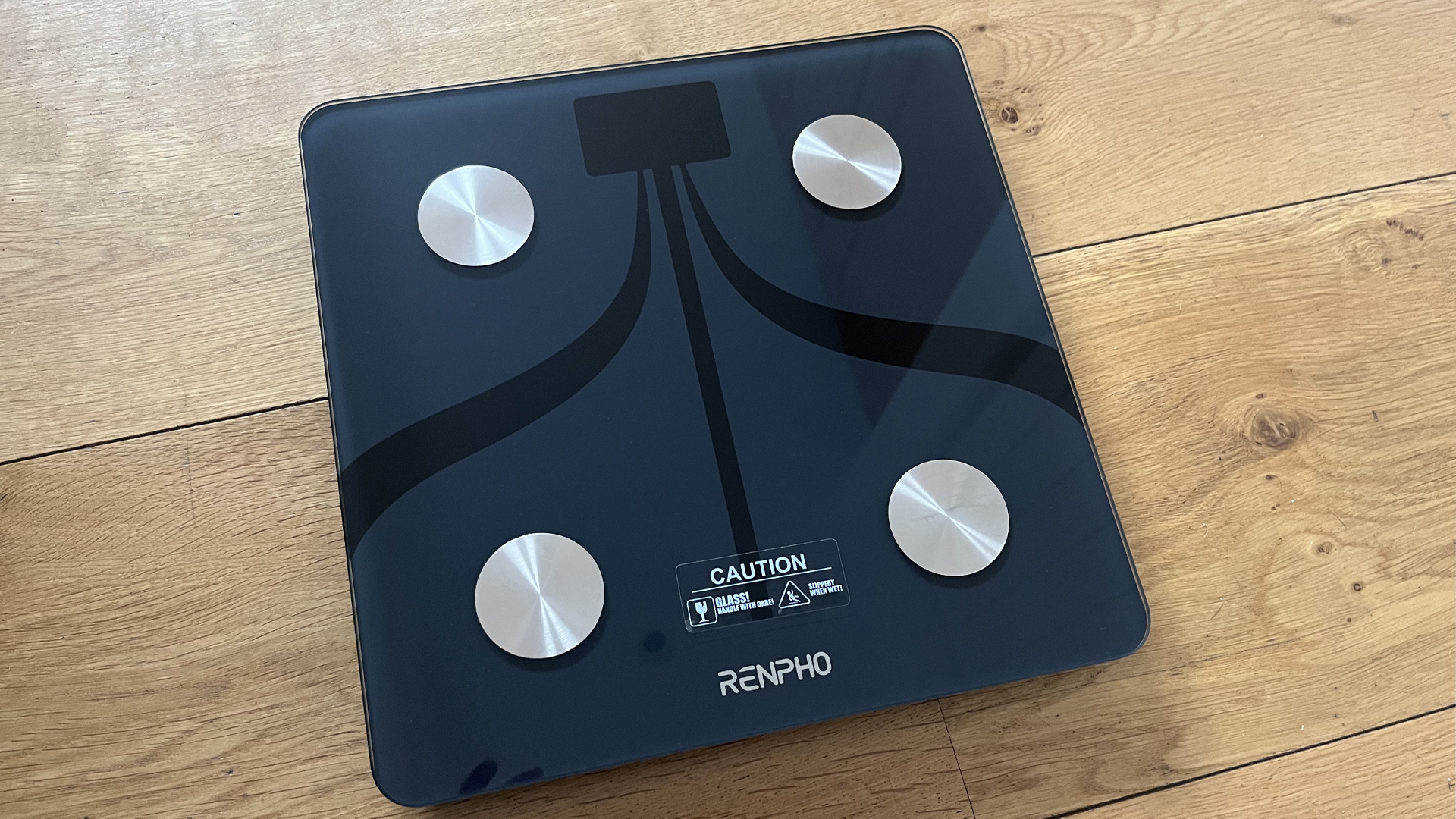
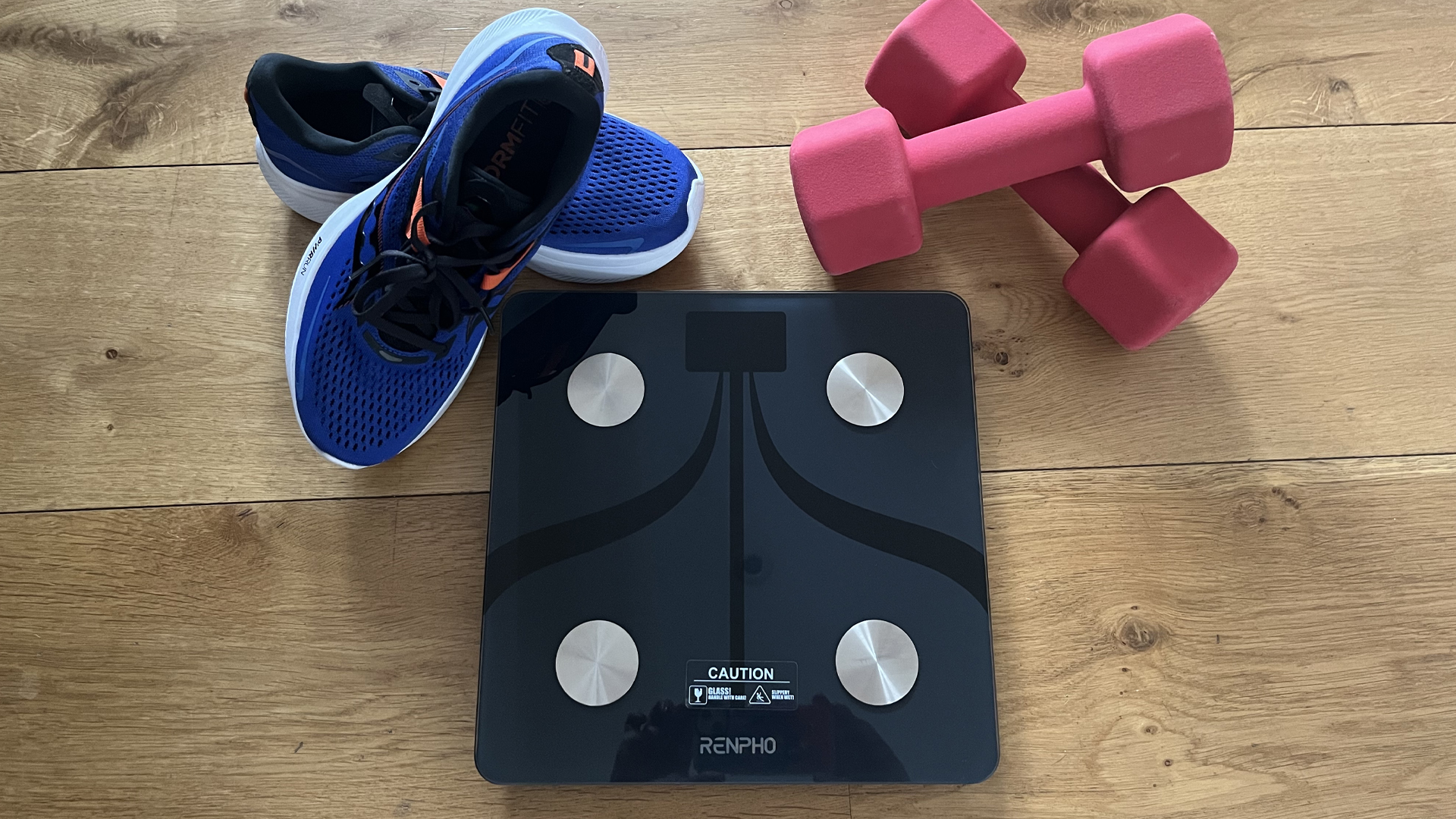
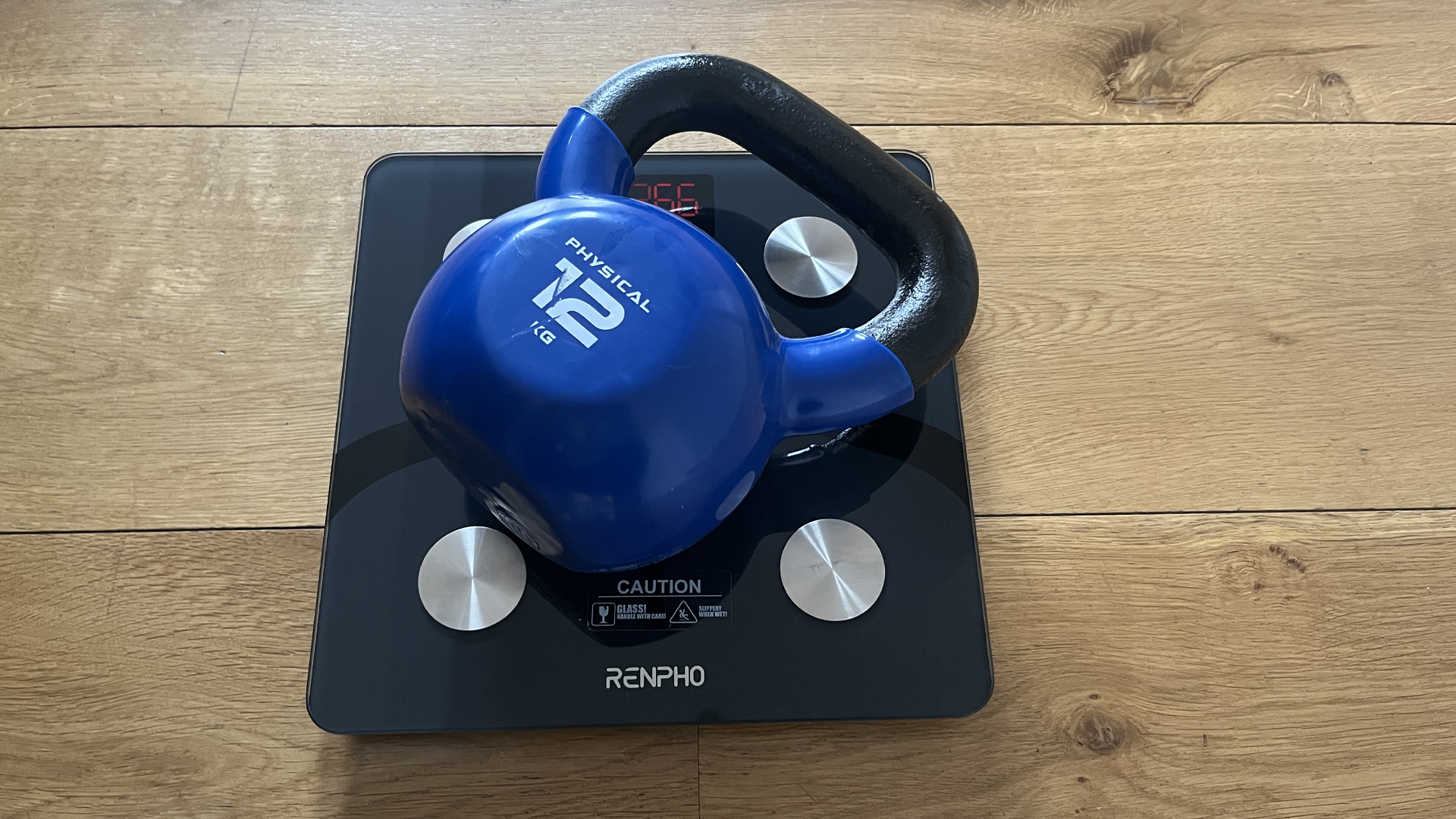
Specifications
Reasons to buy
Reasons to avoid
✅ You use multiple trackers: It can sync with more than 100 health and fitness apps.
✅ You want something reliable: It is relatively accurate and has good connectivity.
✅ You are on a budget: Great value for less than $35.
❌ You hate smudged glass: It smears easily.
🔎 Renpho Smart Scale: It is well made, affordable and offers relatively accurate measurements alongside useful insight into body composition, striking a great balance between price and functionality. ★★★★½
The Renpho Elis 1 Smart Scale easily claims the top spot in our round-up. It is lightweight, easy to use and comes with an excellent accompanying app, but more importantly, it delivers some of the most accurate and robust measurements of all the models we have tested — and it only costs $34.99. The fact that it easily syncs with all the main popular health apps, from Apple Health to Fitbit and MyFitnessPal, is another selling point for us.
We found the Renpho Elis 1 very user- and beginner-friendly. It measures 13 different body metrics, while the app gives you further context about those measurements, and how they relate to the average person. This in turn can help you get better insight into your fitness progress and general health as well as identify areas that may need some improvement. We also liked that this affordable smart scale made it easy to access all our health data in one place.
Unlike most smart scales we’ve tested, the Renpho refreshingly comes with a rechargeable lithium battery and USB charger (included) rather than triple AAAs. It also has unlimited users and baby and pet modes, making it a great choice for families and multi-person households.
But what we loved most about this device is its accuracy. Compared with professional gym scales, it put our tester at two pounds (lbs) heavier — a close reading. We found similarly accurate results with other body metrics during our full Renpho smart scale review. For example, our body water reading was only 5% lower on the Renpho scales than when measured with a larger, more precise BIA machine in our local gym.
Our only real complaint was that the glass on the black model smears easily and if you move it about it might need recalibrating. But if you’re looking for a budget-friendly gadget that delivers, this Renpho smart scale is an excellent choice.
- Read our full Renpho smart scale review
Attributes | Notes |
|---|---|
Stats | Weight, BMI, body fat (subcutaneous and visceral), lean body mass, body water, skeletal muscle, muscle mass, bone mass, basal metabolic rate and metabolic age |
Modes | Default, Baby and Pets |
Supported apps | Renpho app (free) and 100+ health and fitness apps |
Second-best
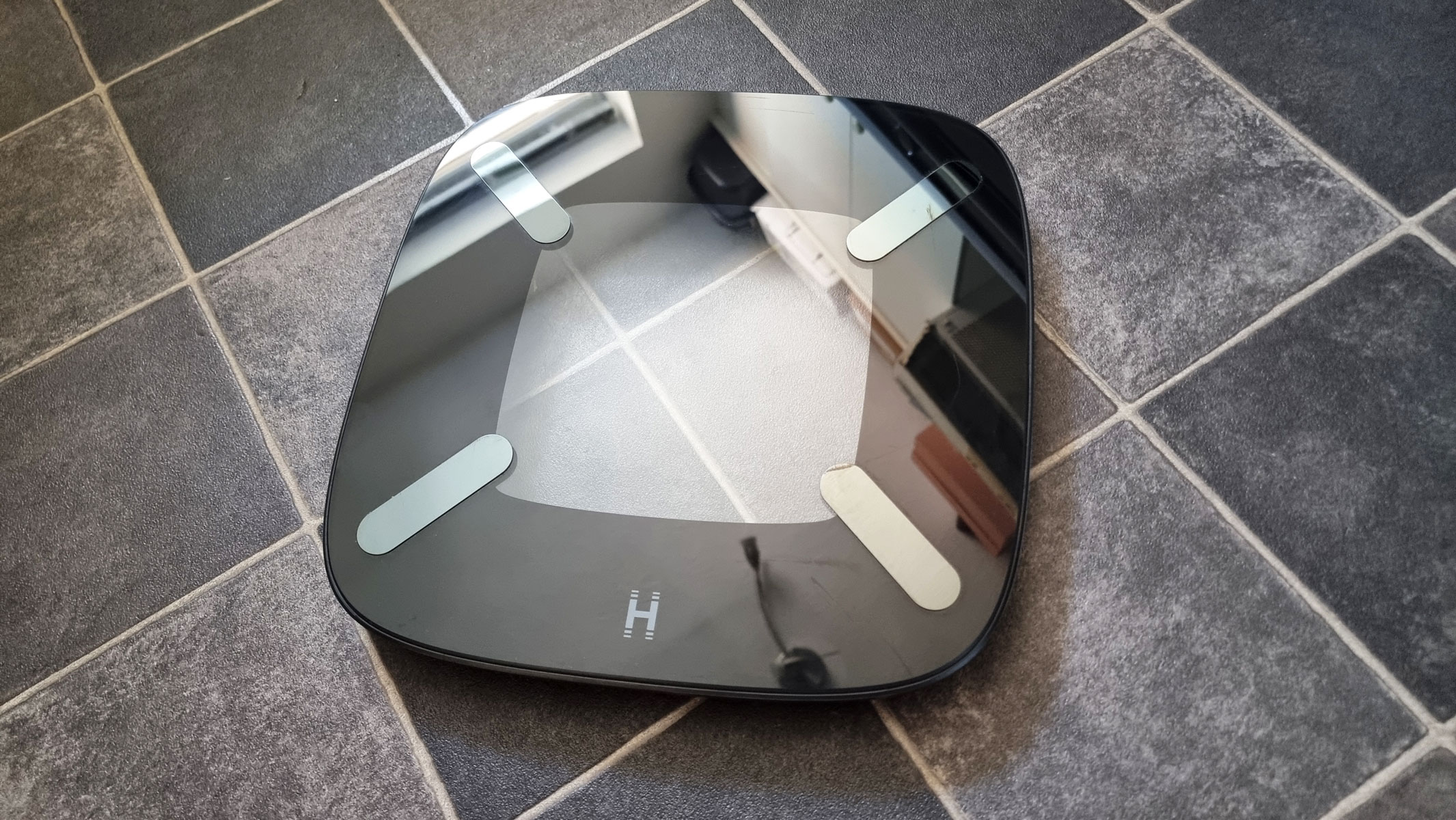
Second-best smart scale
Stylish, durable and impressively accurate at tracking 13 different body composition metrics, the HoMedics glo Body Analyser Scale is a great alternative to the Renpho Elis 1. We particularly liked its easy-to-use connected app and illuminated platform. However, this smart scale is also relatively expensive (it costs around $69.99), and its glass top smudges easily.
Pros
- Highly accurate measurements
- 13 body composition metrics
- Good-looking and durable
- Simple, well-designed app
Cons
- Smudges easily
- Relatively expensive
Best budget smart scale
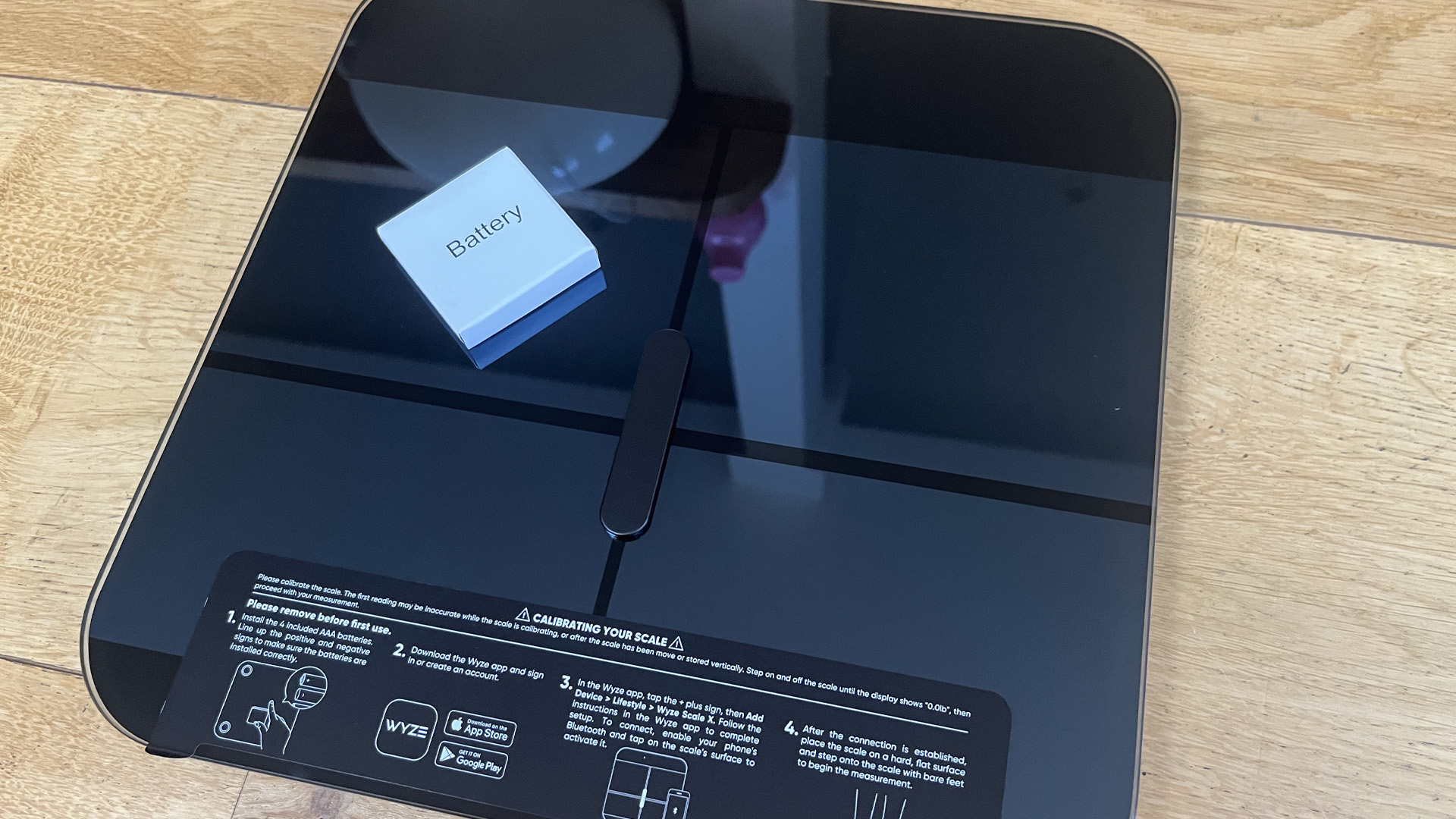
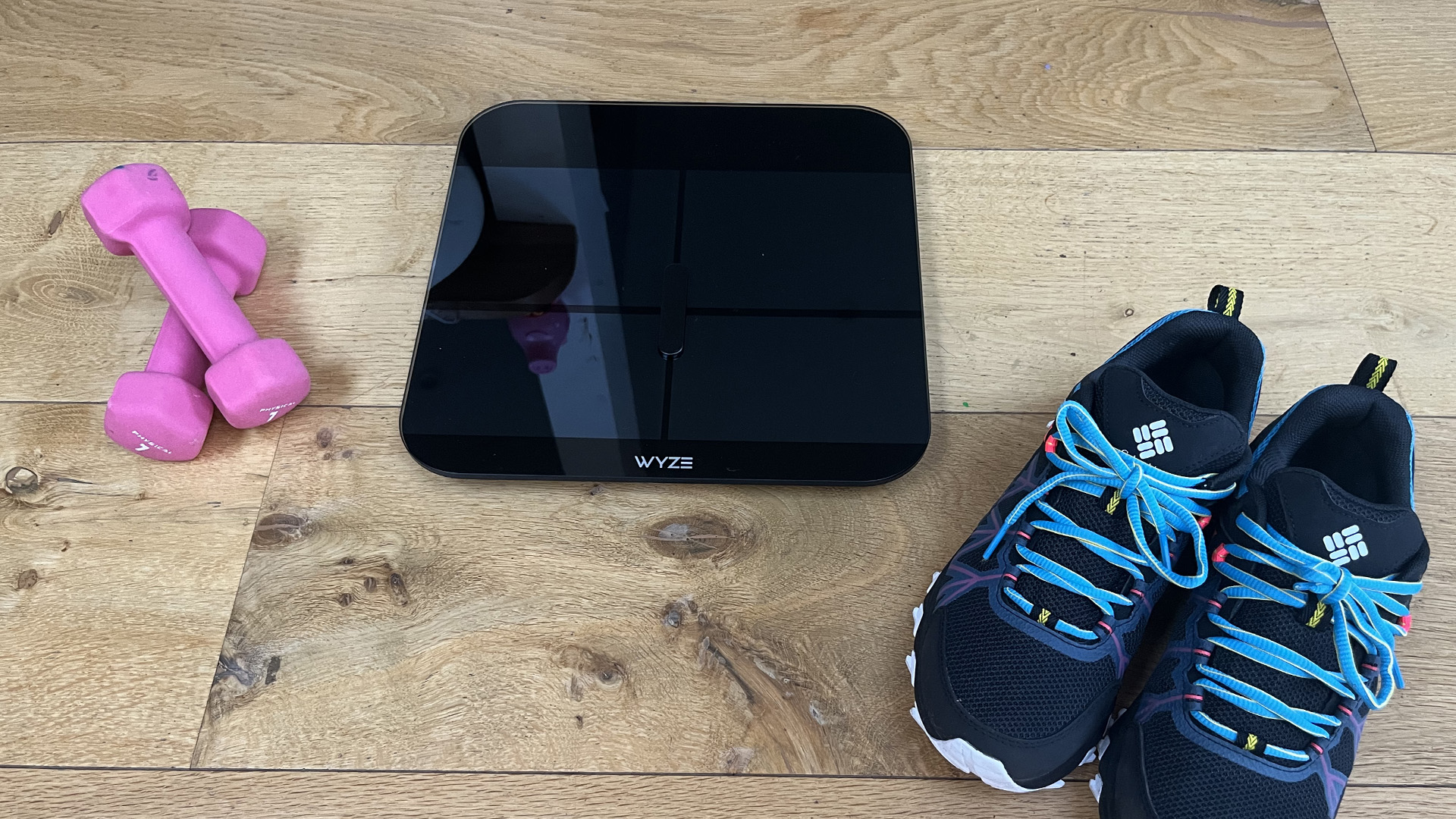
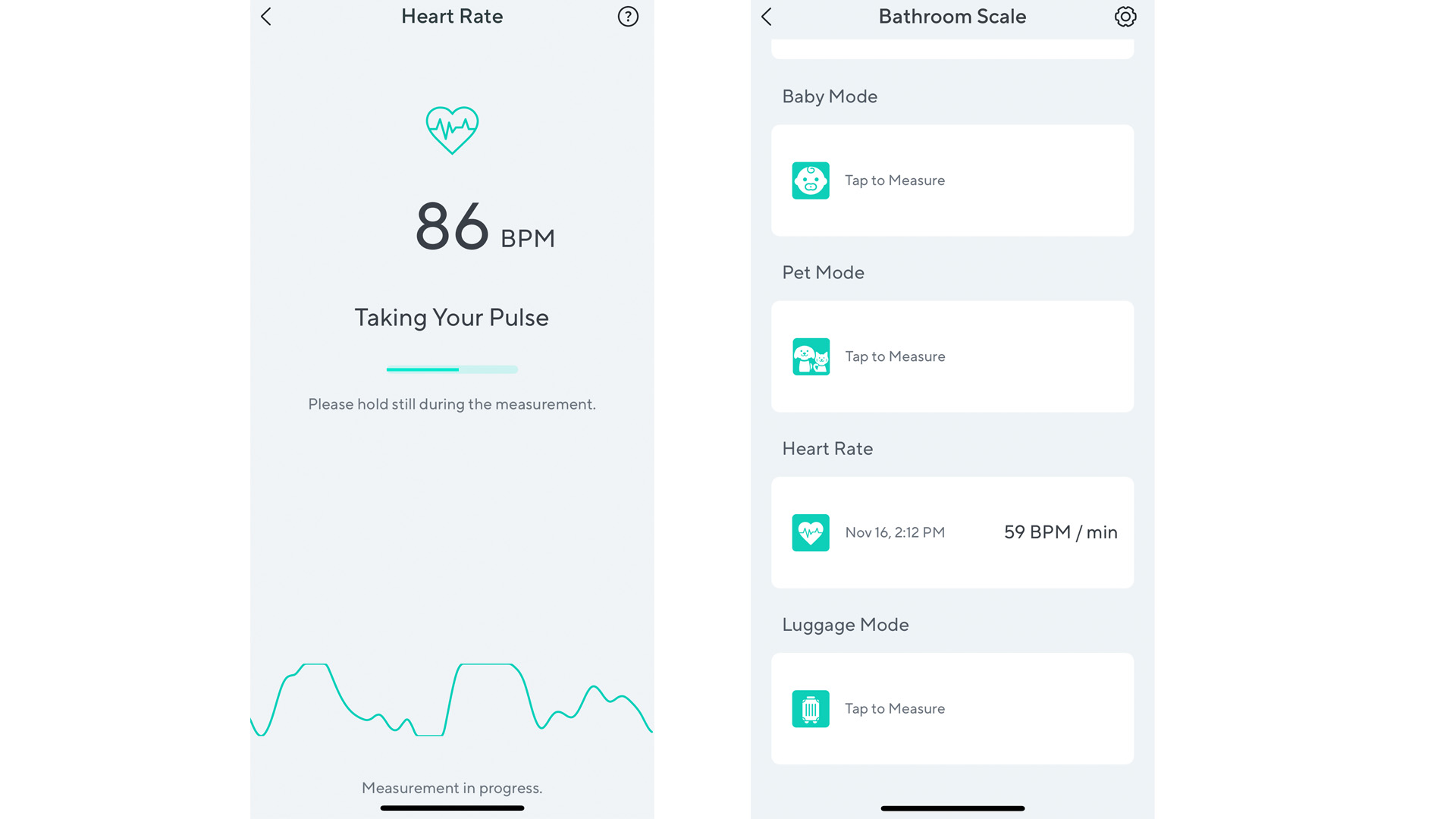
Specifications
Reasons to buy
Reasons to avoid
✅ You want multiple weighing modes: It can weigh babies, pets and luggage.
✅ You want to track your heart rate: It can turn your phone camera into a heart rate sensor.
✅ You are on a budget: It is the cheapest option in this guide.
❌ You want great accuracy: It is considerably less reliable than premium models.
❌ You hate smudged glass: It smears easily.
❌ You are a beginner: It does not fully explain the metrics.
🔎 Wyze Scale X: This budget-friendly smart scale offers heaps of body composition metrics and a heart rate monitor, but it may not be the best option for beginners. ★★★★½
The Wyze Scale X may not be the most wallet-friendly smart scale on the market, but it offers excellent value for money. At just $33.99, it tracks 12 body metrics (including resting heart rate) and offers body weight trend graphs to help you track your progress. The Wyze Scale X can cope with up to eight users and also has both a pregnancy and a weight-only mode, as well as luggage, pet and baby modes. It also syncs with FitBit, Apple Health and Google Fit.
While it did not wow us with accuracy during our full Wyze Scale X review, it still delivered a relatively good performance for such an affordable model. For example, the Wyze Scale X underestimated our tester's muscle mass by only 10% when compared to a recording from a larger, more accurate BIA machine in the gym. That said, we found its body fat measurements to be quite off the mark and we would not recommend this smart scale if fat loss is your primary concern.
We liked its easy-to-use app: simply tap on the different sections to see your readings. However, you will need to either know your stats already or do some research, because there is little insight into the data. And without that, some people may find it difficult to assess what your results may mean and how they relate to your overall health and fitness.
However, we’re big fans of the heart rate monitor feature. This works with your smartphone camera. You just put your fingertip on the camera lens, which becomes an optical heart rate monitor, giving you a resting heart rate measurement. This can give you some insights into your cardiovascular fitness and is a good place to start if you want to know how to get fit.
- Read our full Wyze Scale X review
Attributes | Notes |
|---|---|
Stats | Weight, BMI, body fat percentage, heart rate, lean body mass, muscle mass, visceral fat, BMR, bone mass, metabolic age, protein and body water percentage |
Modes | Default, Pregnancy, Baby, Pet and Luggage |
Supported apps | Wyze app (free), Google Fit, Apple Health, Fitbit |
Most accurate smart scale
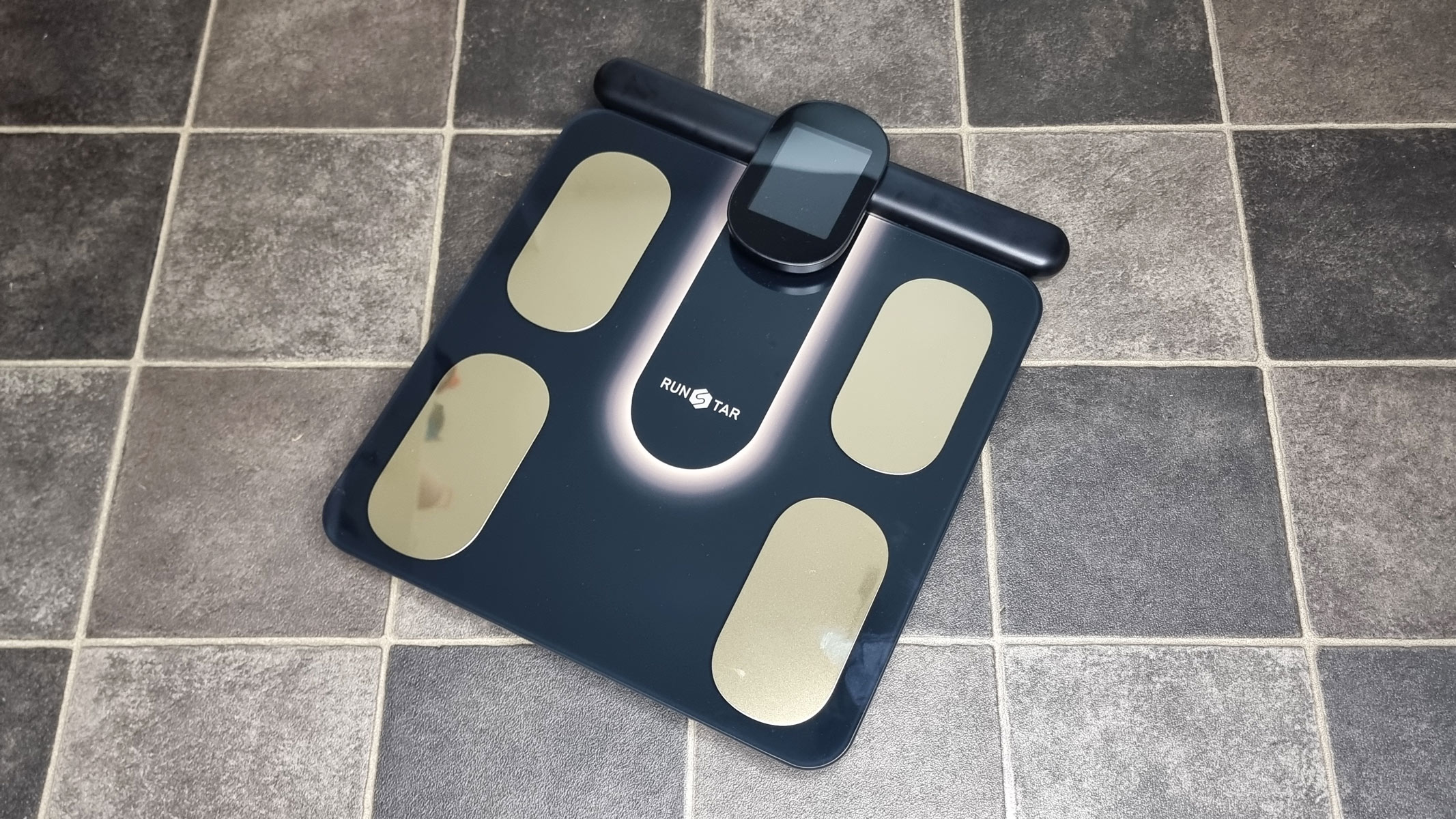
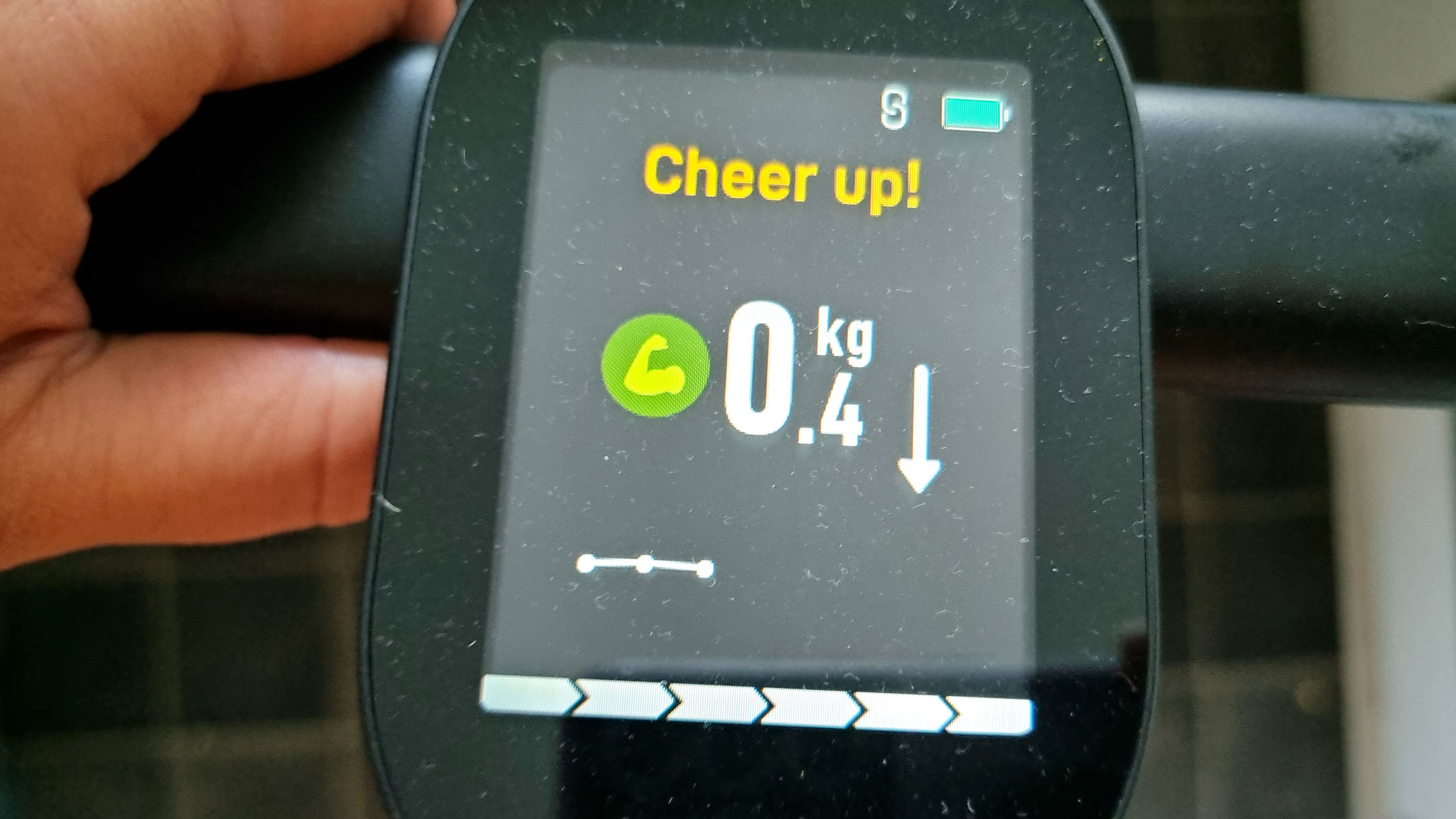
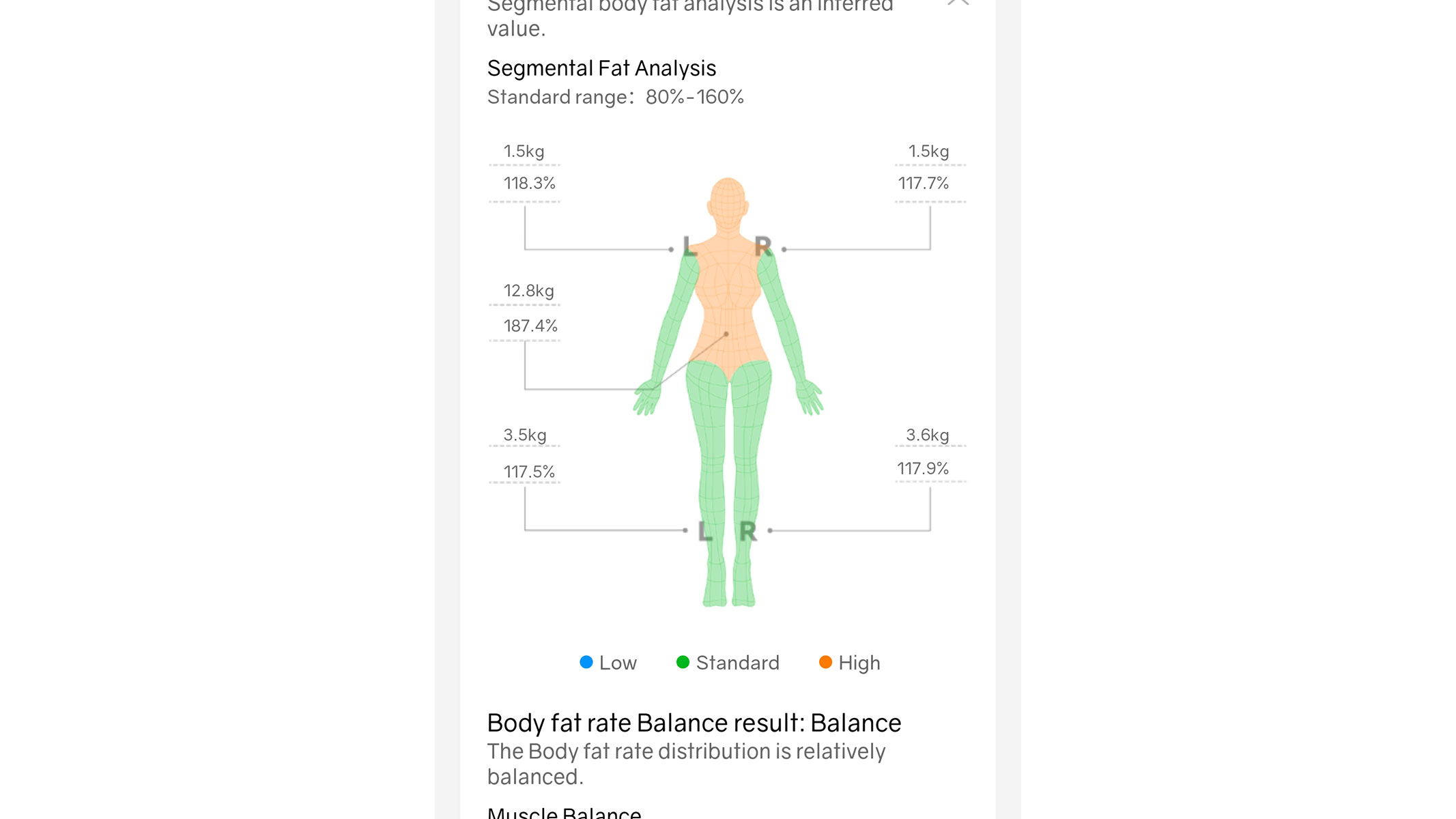
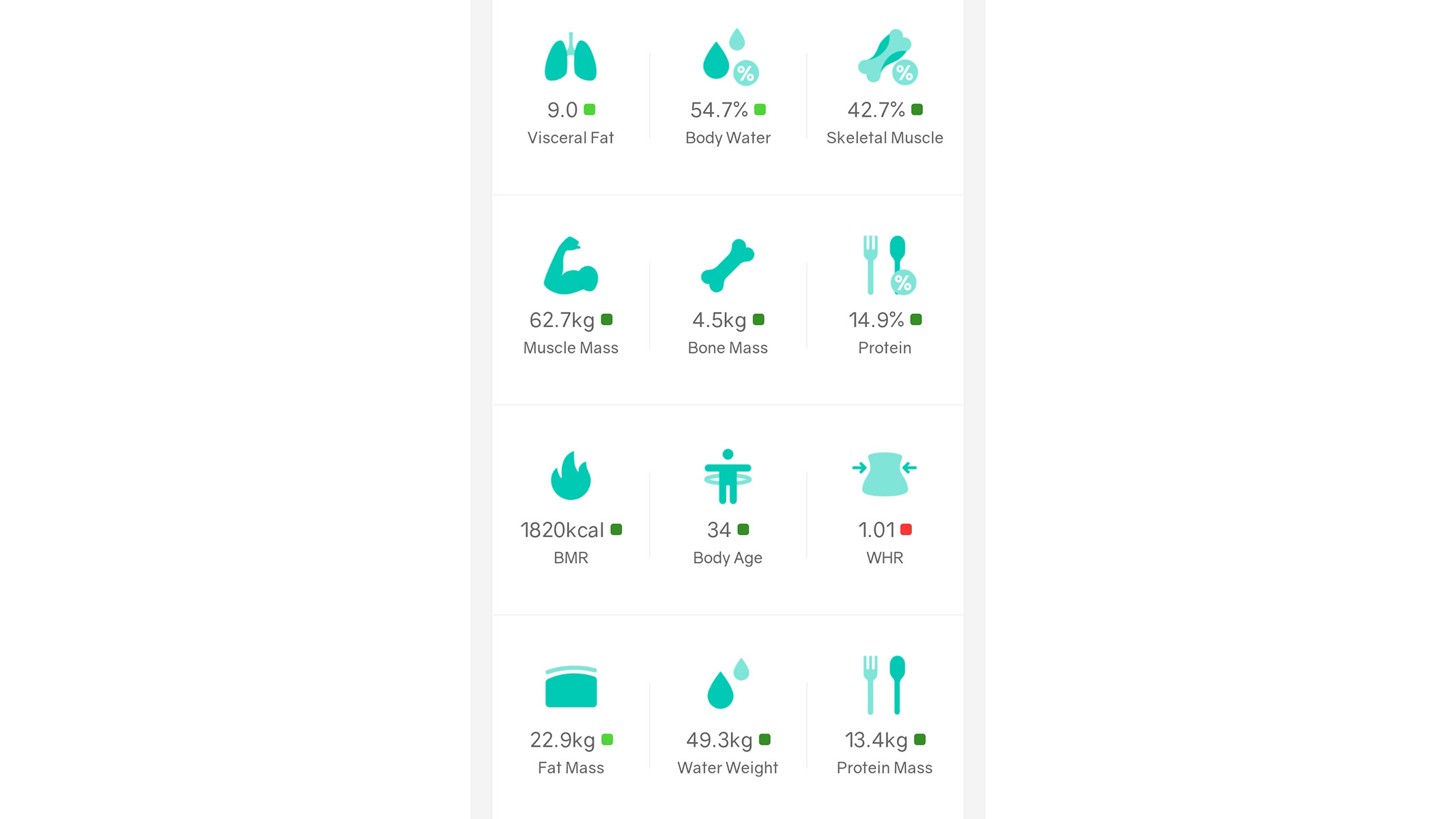
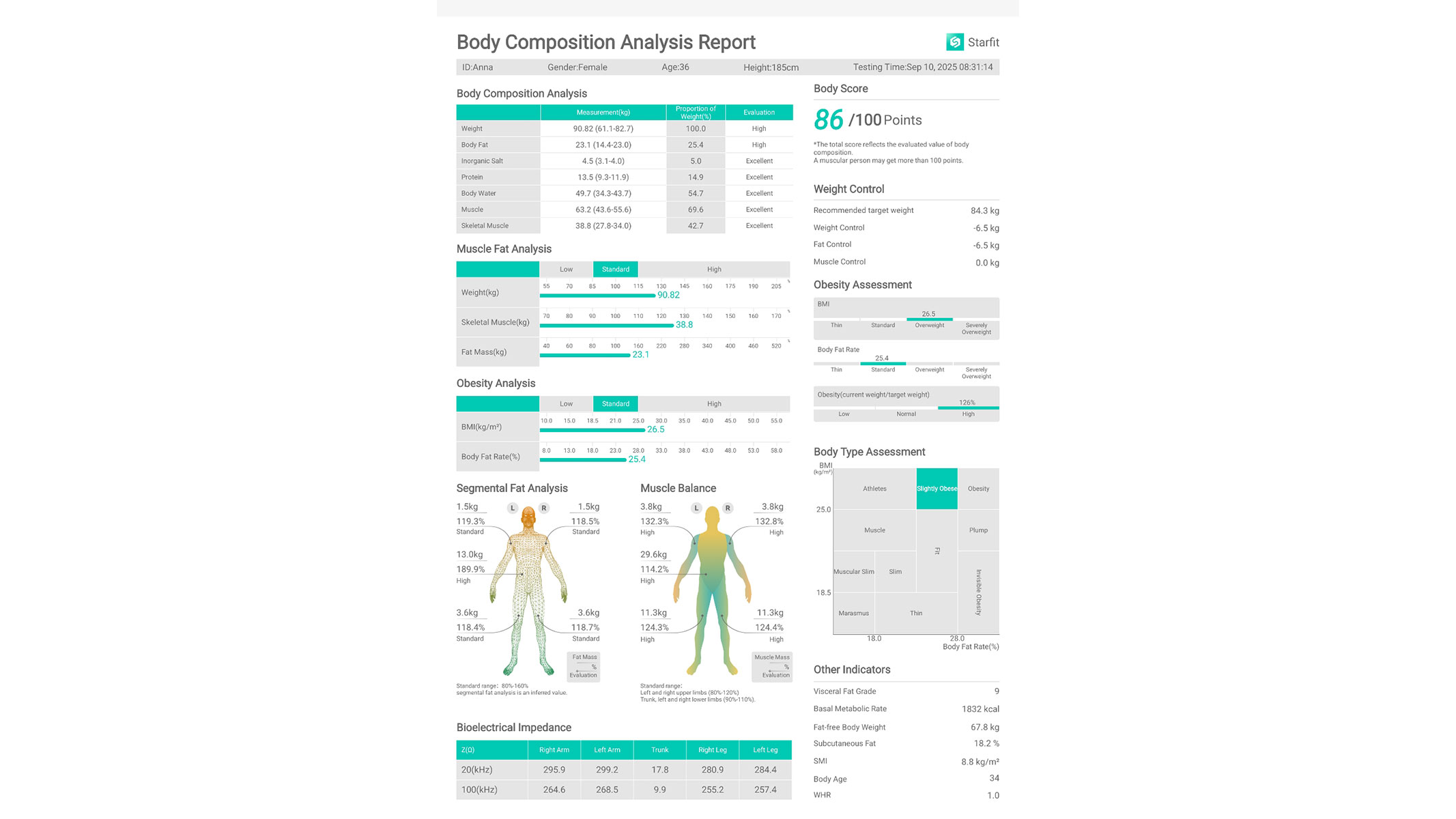
Specifications
Reasons to buy
Reasons to avoid
✅ You want lots of health data: It measures over 21 body composition stats.
✅ You want to share your results: It offers printable health reports.
✅ You prioritise accuracy: It delivered the best results of all the models in this guide.
❌ You are on a budget: It is one of the most expensive smart scales here.
❌ You are a beginner: It may feel too complex and intimidating for people who have not used smart scales before.
🔎 RunStar 8E SmartScan Pro Body Fat Scale: Sleek, accurate and exceptionally detailed in its approach to body analysis, the SmartScan Prois a fabulous piece of kit for fitness professionals. That said, it may not suit beginners, competitive bodybuilders and serious athletes. ★★★★
If you do not want to compromise on accuracy or advanced body composition stats, consider the RunStar 8E SmartScan Pro. It is the only model in this guide that measures body composition using foot-to-hand technology, a technique that has been shown to produce more precise and reliable results than the platform-only technology used in most other smart scales. Moreover, it is one of the handful of commercially available models that can provide segmental body analysis. In simpler terms, the RunStar 8E SmartScan Pro can tell you the difference in muscle mass and body fat percentage between five different parts of your body. This smart scale may cost a rather steep $145, but it is well worth the money.
During our RunStar 8E SmartScan Pro Body Fat Scale review, we compared the body composition measurements taken with this smart scale to the data we obtained with a much bigger, more precise bioimpedance scale used in our local gym. The body weight readings were almost spot-on, while the body composition analysis came impressively close. The SmartScan Pro slightly overestimated our body fat and muscle percentage (by 4% and 2%, respectively), and underestimated our body water by 3%, but it still proved to be more accurate than any other smart scale we tested.
That said, we would not recommend the RunStar 8E SmartScan Pro to beginners. This smart scale can be overly complex and intimidating if you have no prior experience using these devices. Some competitive bodybuilders and athletes may not like it either, as it does not track trends in your segmental body analysis.
- Read our full RunStar 8E SmartScan Pro Body Fat Scale review
Attributes | Notes |
|---|---|
Stats | Weight, BMI, body fat percentage, water percentage, protein percentage, basal metabolic rate, visceral fat, muscle mass, bone mass, body age, segmental body analysis and more |
Modes | Default, Baby, Pregnancy, Athlete |
Supported apps | Starfit, Apple Health, Fitbit, and Health Connect |
Best smart scale for people with big feet
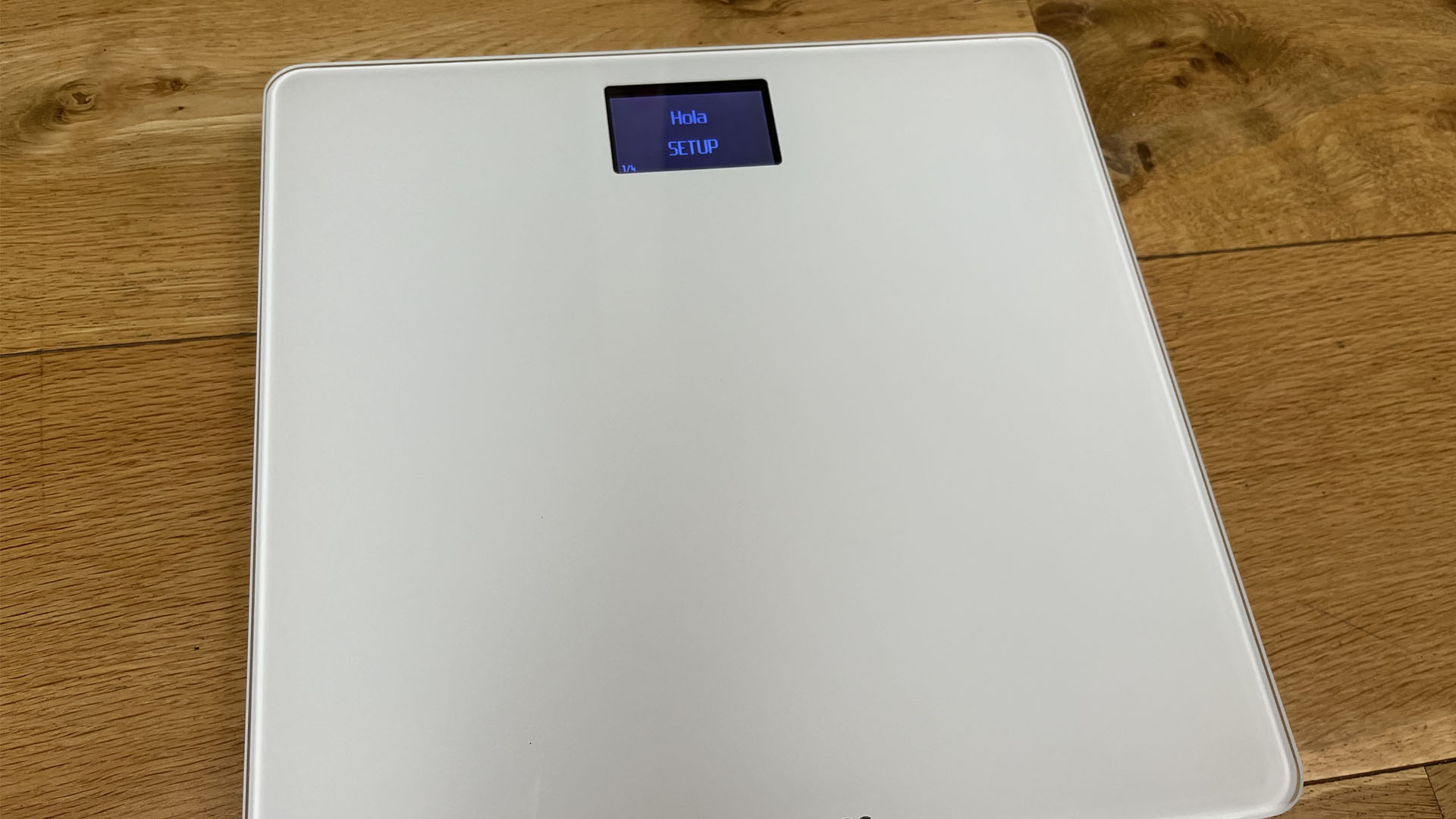
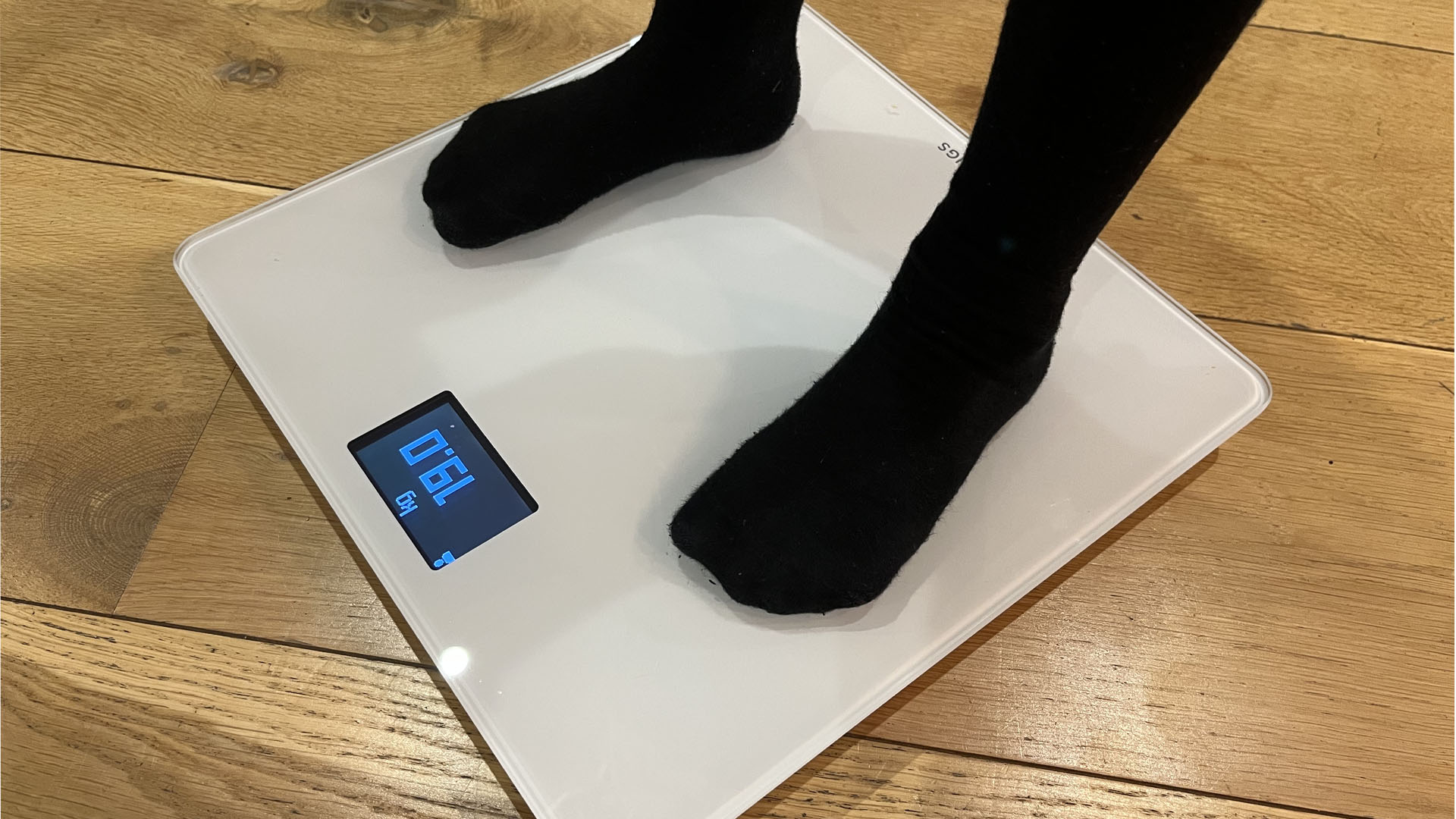
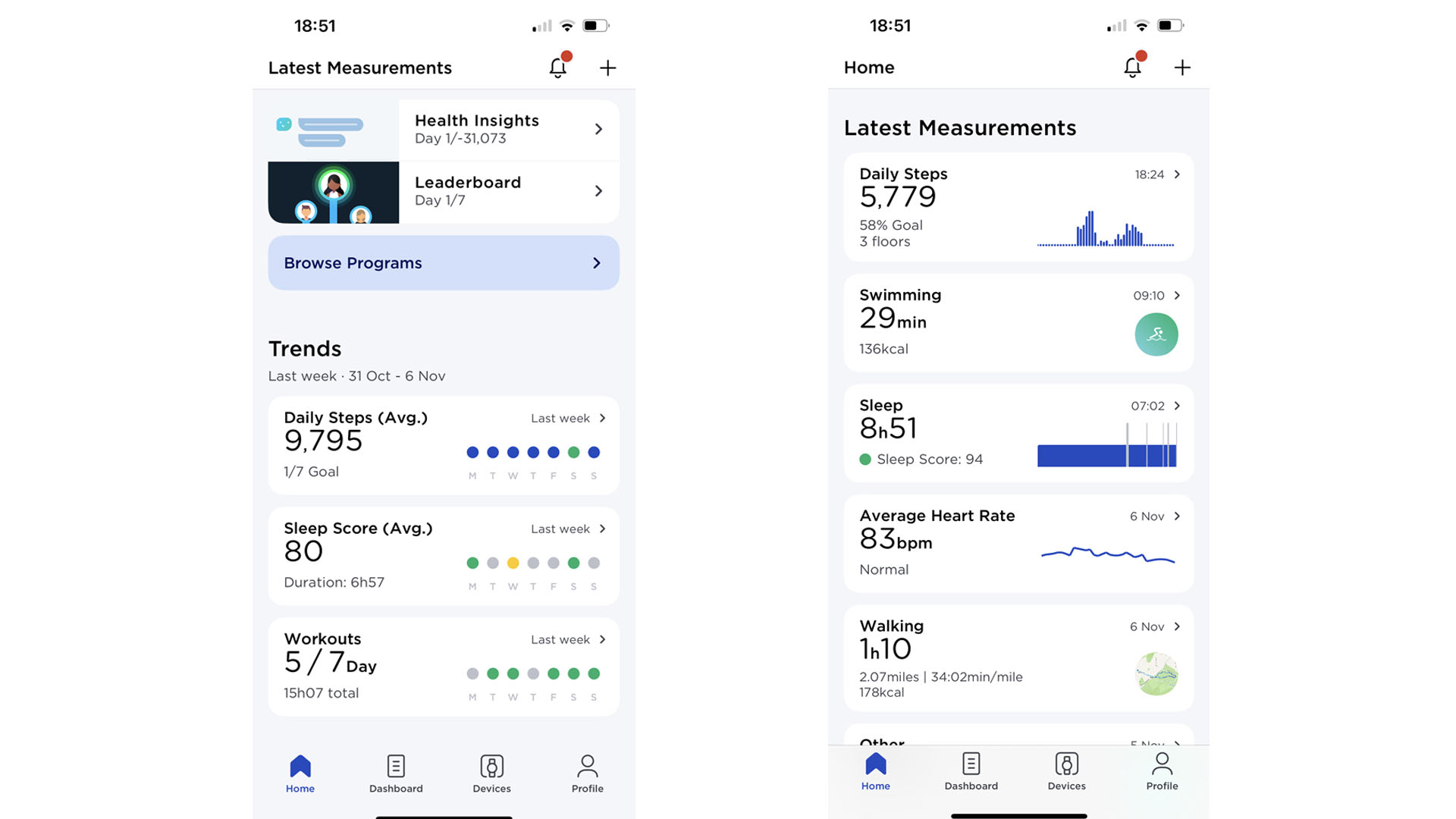
Specifications
Reasons to buy
Reasons to avoid
✅ You have large feet or balance issues: It has a large surface area.
✅ You use multiple trackers: It can sync with more than 100 health and fitness apps.
❌ You want multiple tracking features: For that, check out the brand’s Body Smart or Body Scan scales.
❌ You hate smudged glass: It smears easily.
❌ You want top-end accuracy: It underperformed in our tests.
🔎 Withings Body smart scale: One of the largest smart scales we have tested, it offers excellent app connectivity and multiple weighing modes, but it does not measure any body composition metrics. ★★★½
The Withings Body smart scale is certainly well-designed, and with its unusually large surface area and up to 180 kg (400 lbs) capacity, it is one of the best options for heavier users, those with big feet and people with a poor sense of balance. But given it only measures your weight and BMI, some might reasonably argue it's really no different from a fairly basic digital scale. However, we beg to differ.
The Withings Body scale comes with some excellent smart features. It pairs with the intuitive Health Mate app and will sync with many of the other main health and fitness apps too. It can analyze your weight trends, tell you the weather or, if you have a Withings watch, even provide you with your step count for the day.
However, we had some reservations about its accuracy during our full Withings Body smart scale review. When compared with the professional body composition scales at the gym, the Withings Body scale showed wildly different readings. It also recorded our tester as 3.1 kilograms (kg) / 7 pounds (lbs) heavier than their home Renpho ones, a quite significant difference.
The Withings Body scale certainly does everything it’s meant to do well, but lacks any advanced metrics and gives no insight into body composition. If that’s what you want to track, you’re better off investing in the brand’s Body Smart or Body Scan scales instead — these models can track weight, BMI, body fat percentage, water percentage, and muscle and bone mass. However, they are two to three times more expensive than the basic Withings model.
- Read our full Withings Body smart scale review
Attributes | Notes |
|---|---|
Stats | Weight and BMI Withings Body Smart or Body Scan: weight, BMI, body fat percentage, water percentage, muscle and bone mass |
Modes | Default, Pregnancy, Baby and Athlete |
Supported apps | Withings Health App (free) and 100+ health and fitness apps |
Best smart scale for athletes
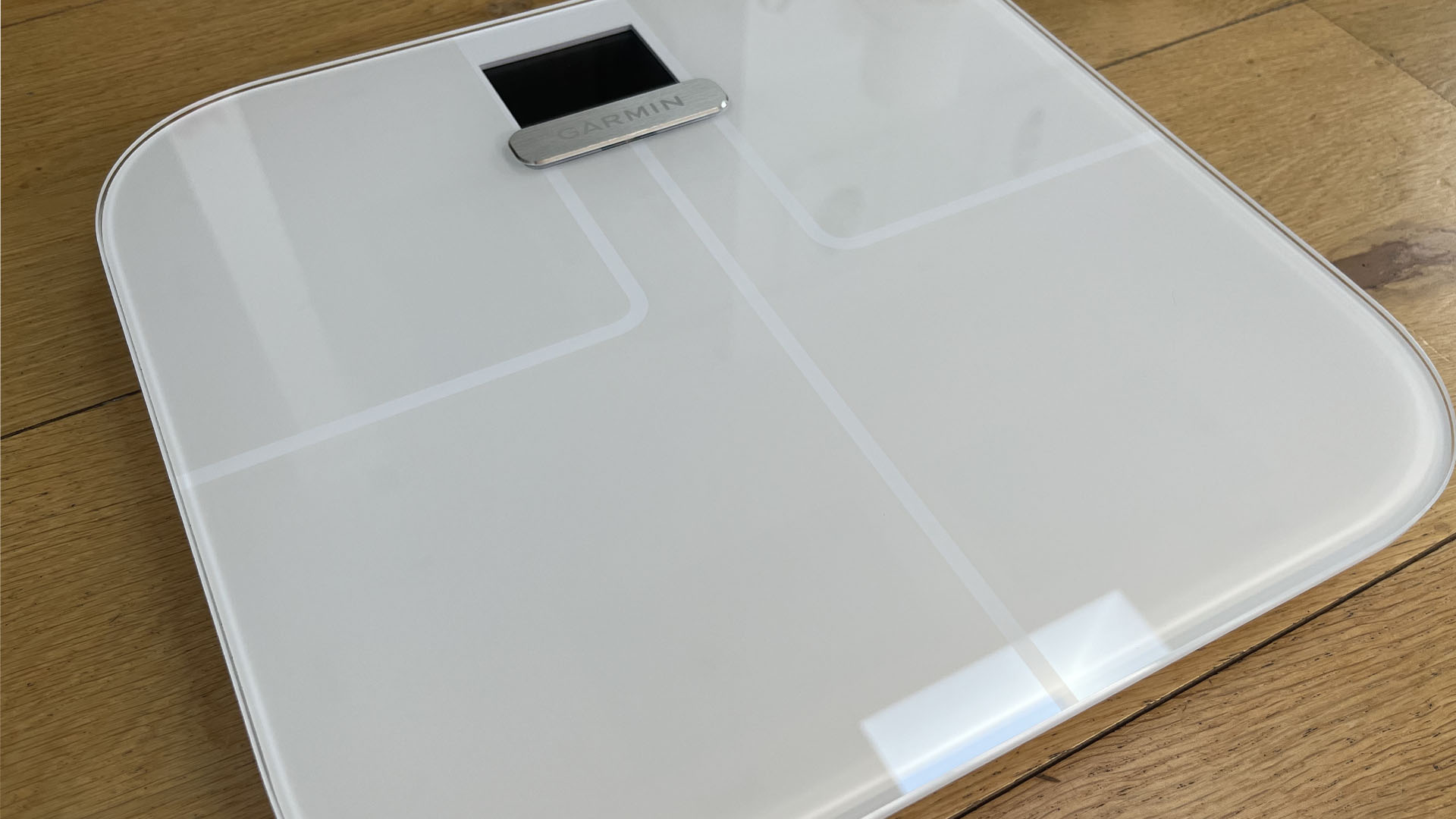
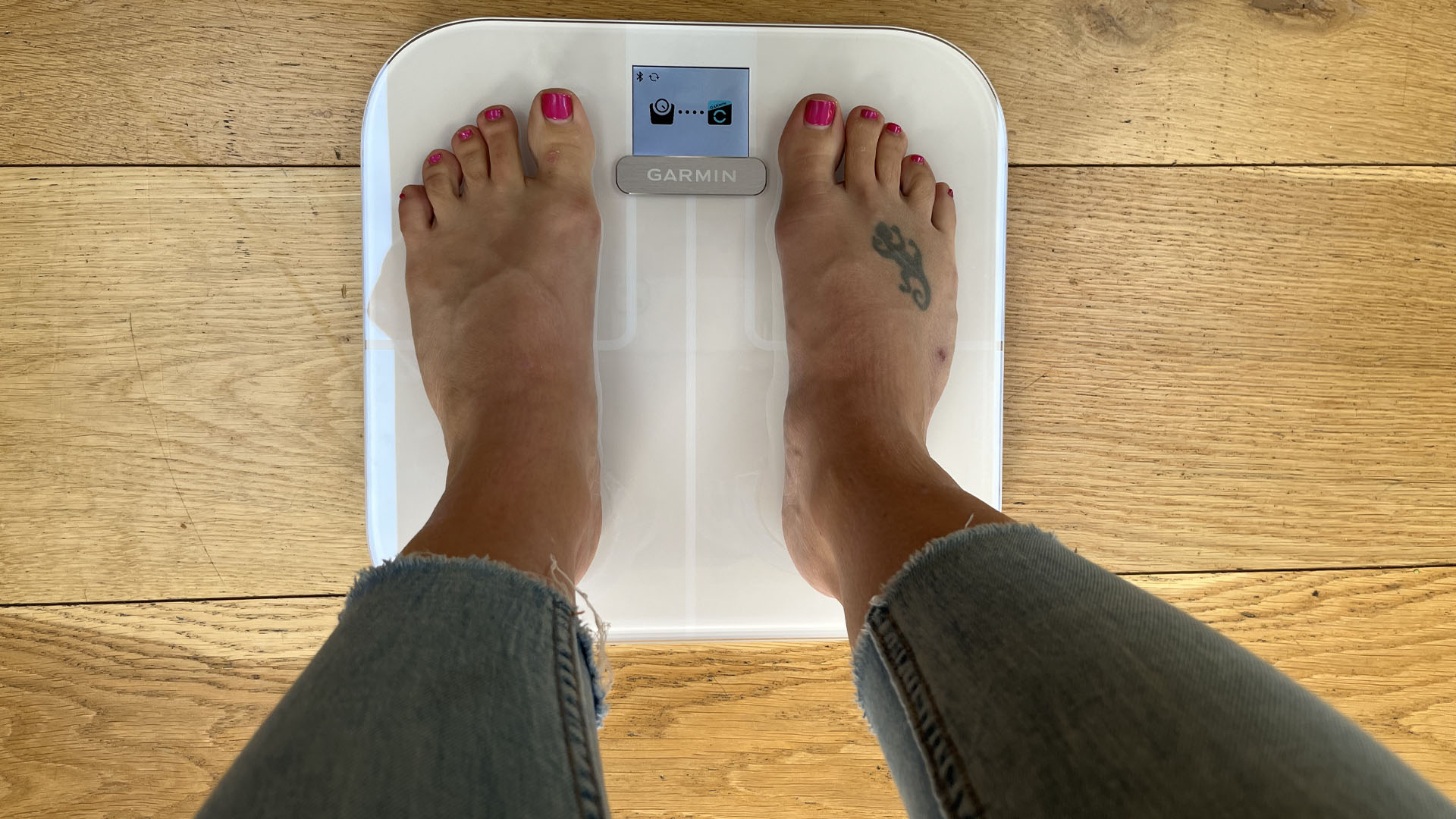
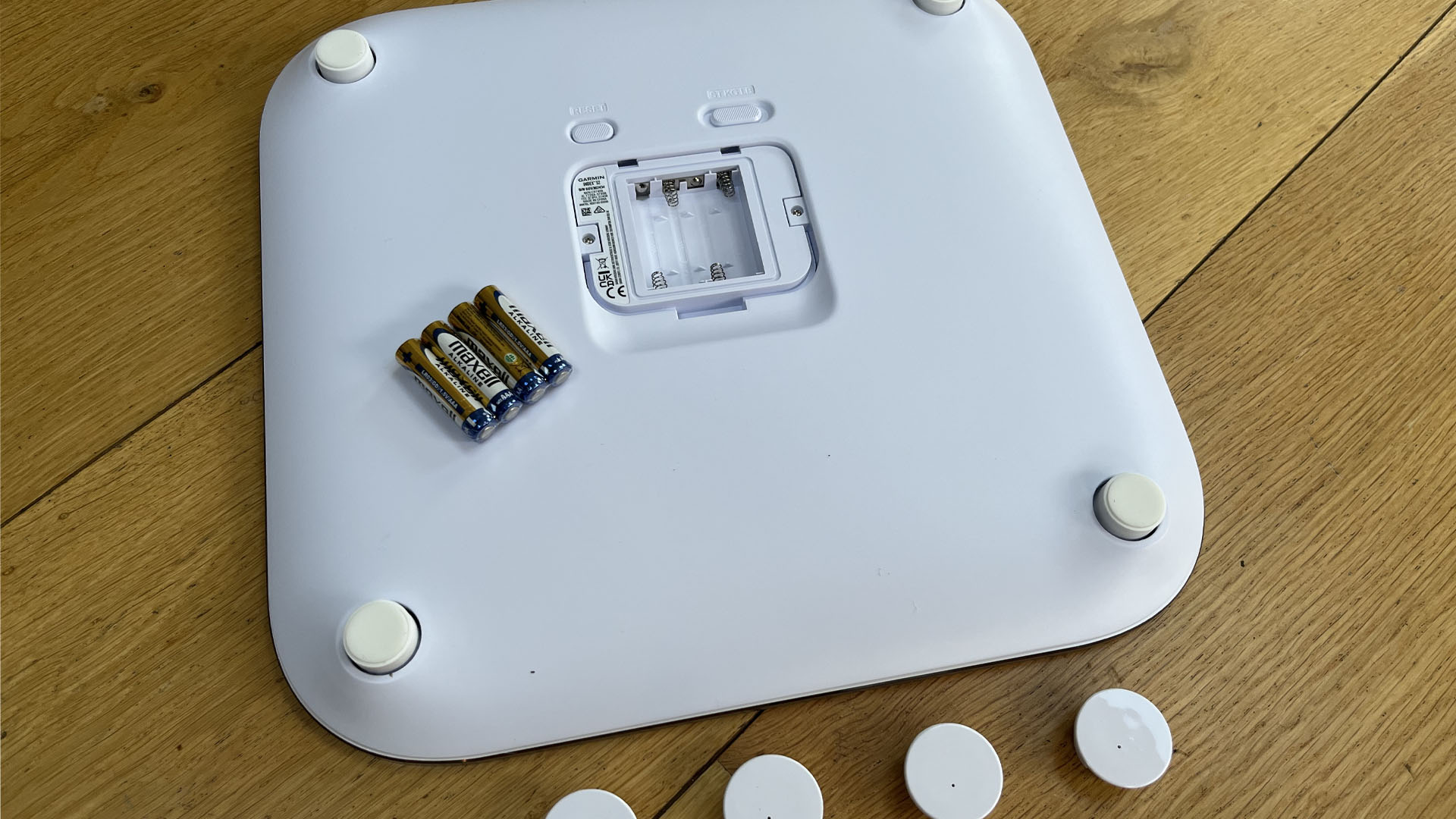
Specifications
Reasons to buy
Reasons to avoid
✅ You want precision: It offers the most accurate measurements of all the smart scales in this guide.
✅ You want detailed progress tracking: It is perfect for multiple weigh-ins.
✅ You use Garmin fitness trackers: It can sync with the Garmin Connect app.
❌ You are on the budget: It costs $149.99.
❌ You are a beginner: It does not explain the metrics in sufficient detail.
🔎 Garmin Index S2: One of the best-performing smart scales we have tested, it offers accurate measurements of body composition and impressive connectivity, but it also comes with a sky-high price tag. ★★★
If you are already a Garmin fan, you might well be temped by the latest version of their smart scales. The Index S2 offers an upgrade on the previous model, with a new color screen, upgraded sensors and more body metrics. However, at $149.99, we have to say there are much better devices out there.
Firstly, the pros. It syncs well to the Garmin Connect app (as well as MyFitnessPal) and is certainly well designed. Its lightweight and portable, and easy to use. It looks good, too.
However, for the price we would expect a lot more information about the metrics it records and what they mean. It's pretty standard, certainly, for smart scales to have a small screens and not much data on them, but the accompanying app then should offer a deeper dive. Unfortunately that's not the case here. The scales and app simply offer the same data, with no context or explanation. The only extra you get on the app is health trend graphs.
During our full Garmin Index S2 review we also found there was an emphasis on multiple weigh-ins, which could be useful for pro athletes but for the average person is not particularly helpful if you might be inclined to obsessive behaviors. On the plus side, it impressed us with its accuracy. For example, its body weight reading was only 0.1kg higher than the professional BIA machine.
There’s no doubt the Garmin Index S2 is well made and looks sleek, but it's expensive and simply doesn’t offer enough for the price.
- Read our full Garmin Index S2 review
Attributes | Notes |
|---|---|
Stats | Weight, BMI, bone mass, skeletal muscle mass, body fat percentage, body water percentage |
Modes | Default, Body weight only |
Supported apps | Garmin Connect (free) and MyFitnessPal |
Best smart scale for personal trainers
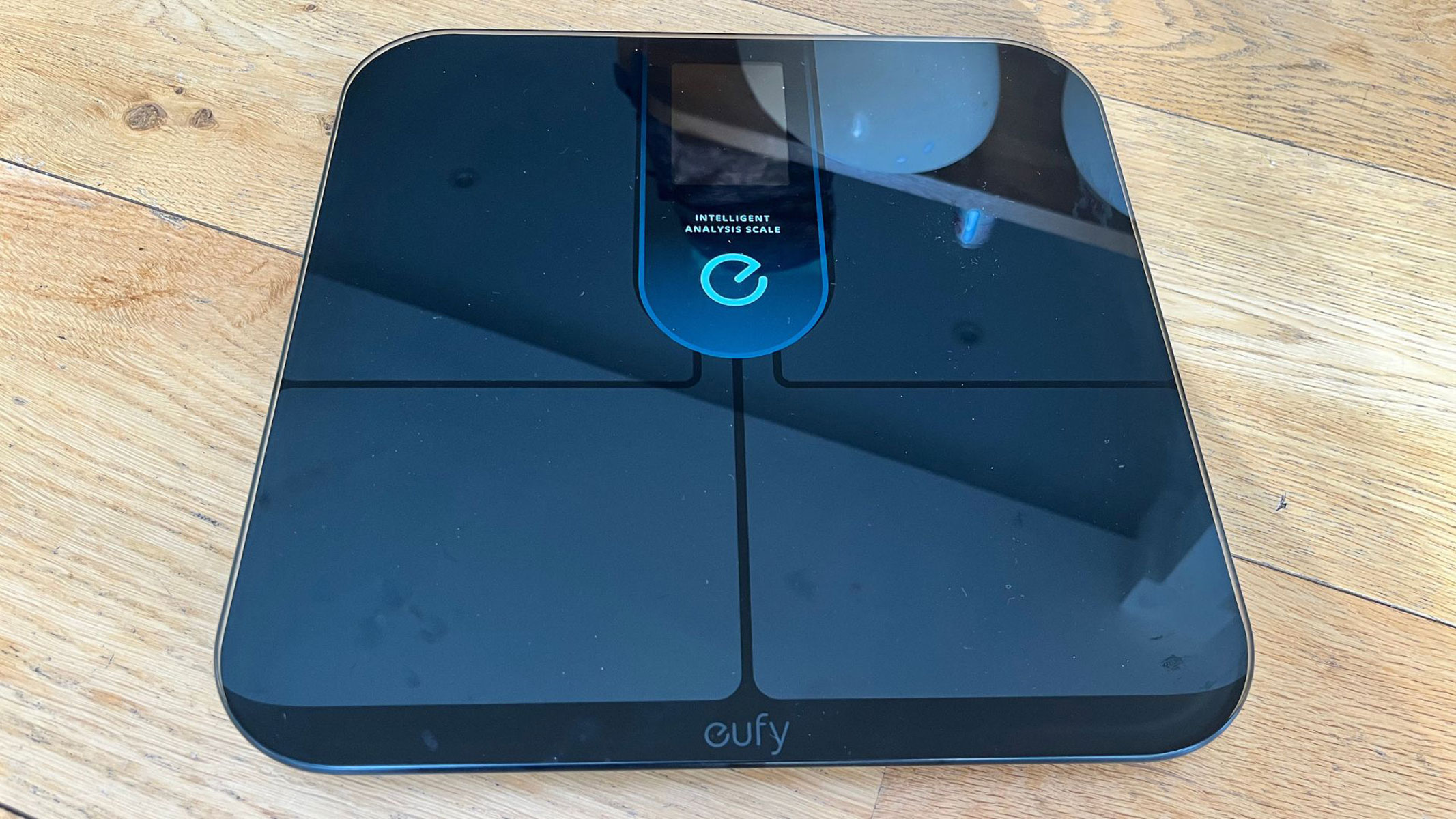
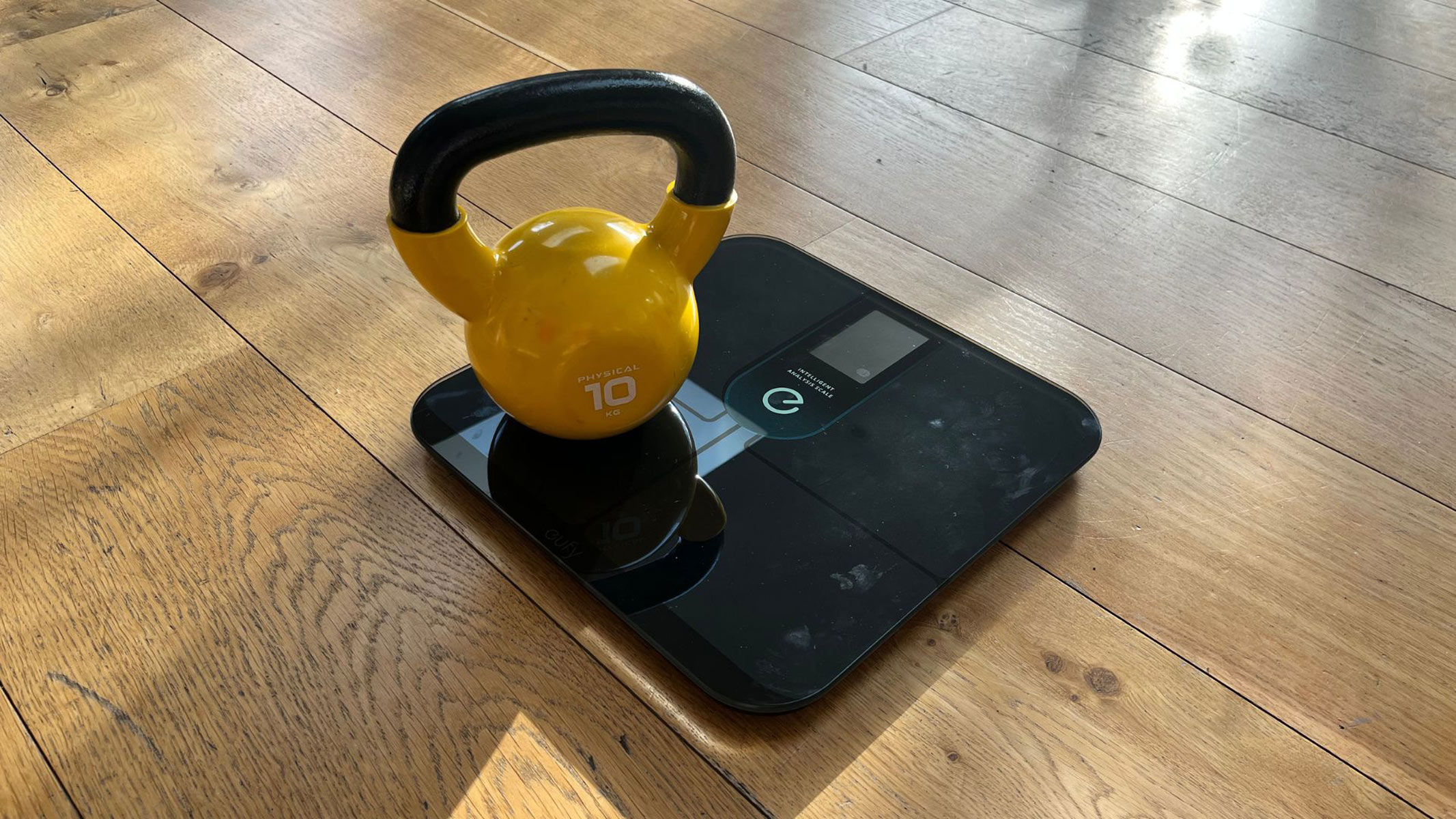
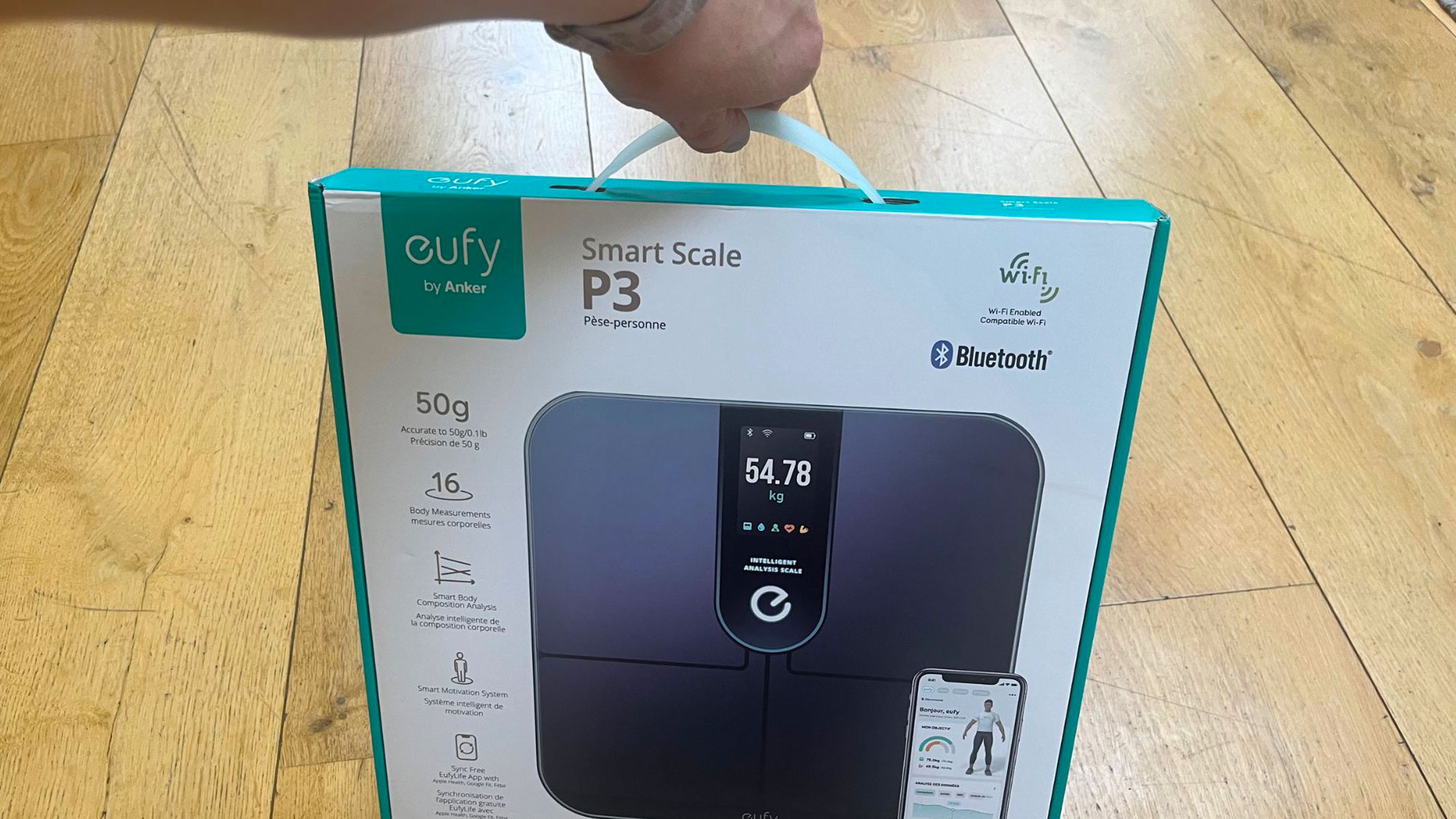
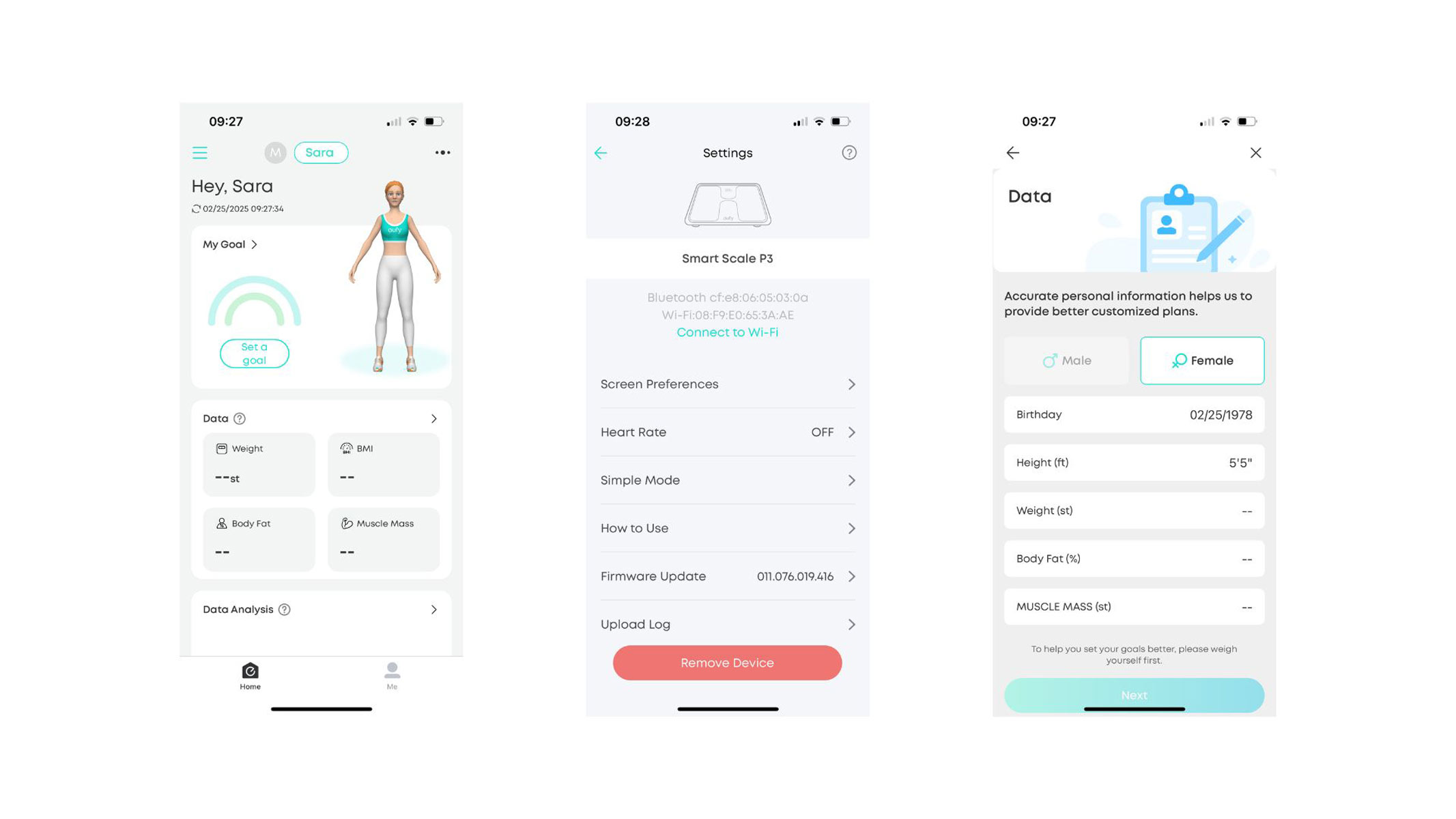
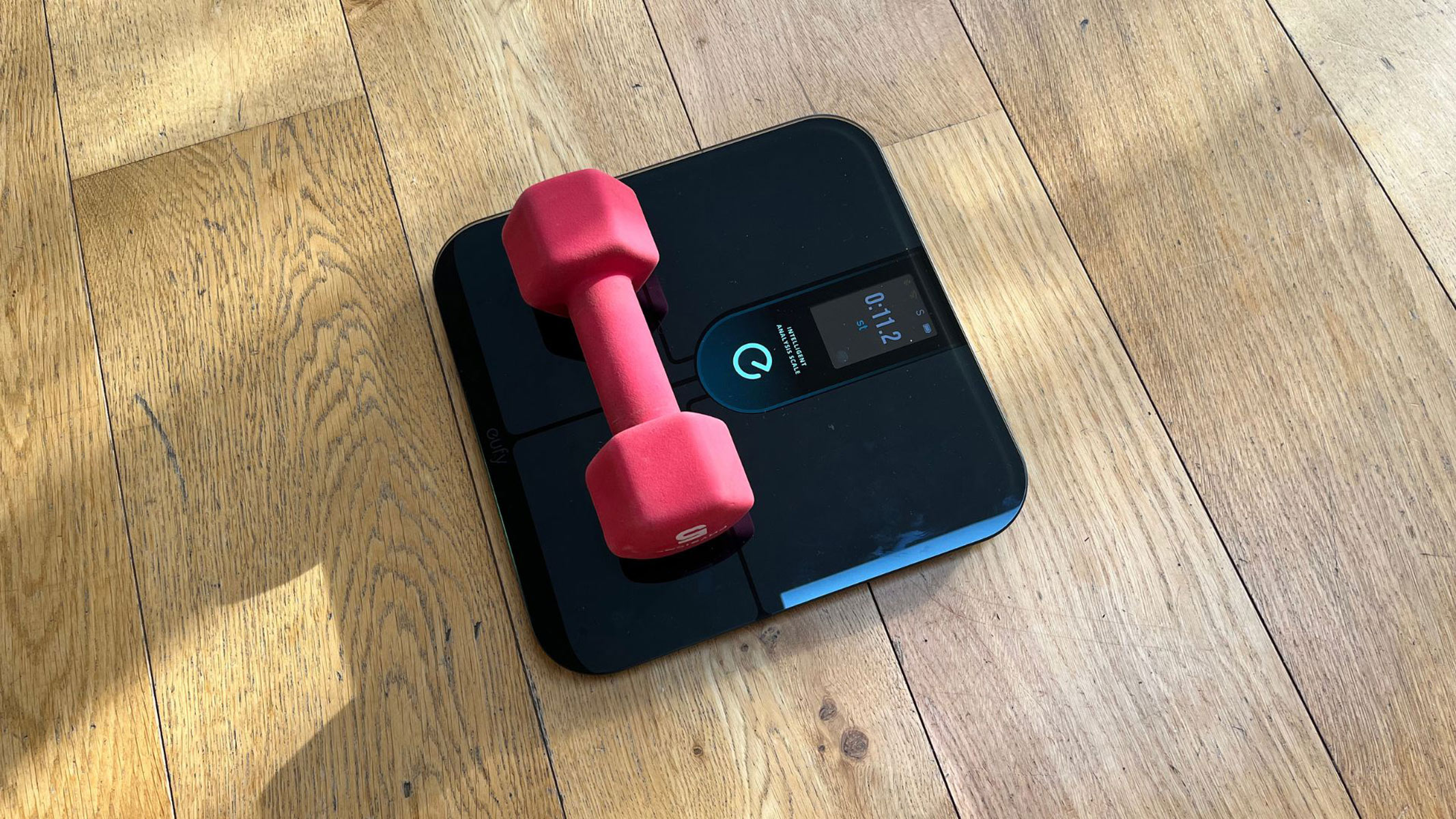
Specifications
Reasons to buy
Reasons to avoid
✅ You have many clients: It offers unlimited user profiles.
✅ You want robust health metrics: It measures 16 body composition stats.
✅ You want multiple weighing modes: It can weigh babies and pets.
❌ You hate smudged glass: It smears easily.
❌ You want top-notch accuracy: It may be less reliable than more premium models.
🔎 Eufy P3 smart scale: It is well-designed, relatively accurate and jam-packed with useful metrics, but it does not cost the earth or overcomplicate things. However, it does not link with many third-party apps and its glass top smears easily. ★★★★
If you are a fitness professional, you know how crucial progress tracking can be for keeping your clients engaged and motivated to hit their goals. Smart scales can be an invaluable tool here — they can provide your mentees with heaps of constructive feedback and give them the push they need to go the extra mile. This can be particularly important in the first few weeks of training when results may not yet be visible to the naked eye. There is one caveat, though. Most smart scales come with a limited number of user profiles, meaning you can only track a certain number of clients at a time. The Eufy P3, on the other hand, is one of the handful of devices that do not pose such limitations.
This stylish smart scale not only offers unlimited user profiles, but it is also portable, easy to set up and packed to the brim with tracking features. It can measure 16 different body composition stats, from muscle mass and body fat percentage to heart rate and basal metabolic rate, making it one of the most robust and versatile devices in this guide. That said, the Eufy P3 is still very beginner-friendly — all metrics are shown on easy-to-understand graphs and explained in sufficient detail. Moreover, this smart scale can connect to Apple Health, Google Fit and Fitbit app and it also allows you to export results in a PDF file. All in all, it is an excellent tool for personal trainers and sports coaches.
Of course, this smart scale is not without its flaws. During our full Eufy P3 smart scale review, we were underwhelmed by its limited third-party app support and we did not like that its glass was smearing easily. We also had some reservations about its tracking accuracy. However, we tested it against the Renpho Elis 1 smart scale rather than a gym-based BIA machine so we can't rule out the possibility of flawed measurements. Nevertheless, we still think the Eufy P3 is worth investing in. It provides plenty of value at a reasonable cost of $99.99 and you'd be hard-pressed to find a more cost-effective option for fitness professionals.
- Read our full Eufy P3 smart scale review
Attributes | Notes |
|---|---|
Stats | Weight, BMI, body fat percentage, body fat mass, lean body mass, visceral fat mass, subcutaneous fat mass, bone mass; muscle mass, skeletal muscle mass, protein, BMR, heart rate, water levels, body age and body type. |
Modes | Pet, Baby, Pregnancy, Athlete |
Supported apps | Eufy Life app (free), Google Fit, Apple Health, Fitbit |
Best smart scales: Comparison
Model | Rating | ✅ Pros | ❌ Cons | Size (inch) | Max user weight |
|---|---|---|---|---|---|
Renpho Smart Scale | ★★★★½ | Accuracy, design, smart features. | Glass smears easily, needs recalibrating. | 11.8 x 11.8 | 180 kg/ 396 lbs |
Wyze Scale X | ★★★★½ | Price, features, ease of use. | No WIFi, hard-to-read display. | 11.8 x 11.8 | 180 kg/ 396 lbs |
RunStar 8E SmartScan Pro | ★★★★ | Design, features, accuracy. | Price. | 12.02 x 14 | 180 kg/ 396 lbs |
Withings Body | ★★★½ | Accessibility, surface area. | Smeary glass top, limited features. | 12.8 x 12.8 | 180 kg/ 396 lbs |
Garmin Index S2 | ★★★ | Ease of use, display, features. | Price, app. | 12.6 x 12.2 | 180 kg/ 396 lbs |
Eufy P3 | ★★★★ | Ease of use, surface area, unlimited user profiles. | Smeary glass top, limited app compatibility. | 12.8 x 12.8 | 200 kg/ 440 lbs |
Our expert consultants

Dr. Daniel Atkinson is a general practitioner and clinical lead at Treated, an online healthcare provider. He obtained his medical qualification at the University of Southampton Medical School in 1999 and became a GP in 2004. Daniel supervises GPs in training and has extensive experience in upholding the highest standards of medical practice.

Dr. Jane Glazebrook is a clinical team leader and consulting doctor at The Slimming Clinic, a UK-based online healthcare provider. She obtained his medical qualification at the University of Southampton in 2013. Jane offers medical-assisted weight management, guiding her patients through a successful weight loss journey while helping them manage and/ or prevent multiple chronic diseases.
Best smart scales: FAQs
What do smart scales measure?
Smart scales not only measure your body weight, but they can also provide you with a detailed analysis of body composition, Dr Daniel Atkinson, general practitioner and clinical lead at Treated, an online healthcare provider, told Live Science. "They essentially break your body weight into different components, such as water, bone, muscle and fat mass, to give you a better picture of what your body consists of," he said.
However, not all smart scales are created equal. While some devices only measure basic metrics like muscle mass and body fat percentage, others — such as the Renpho Elis 1, for example — can also track more in-depth stats like visceral fat mass (a type of body fat that accumulates around your internal organs, sometimes referred to as "hidden fat") and basal metabolic rate (a minimum number of calories your body needs to perform basic bodily functions, such as breathing and pumping blood.) Some premium smart scales can even track your water intake and measure your heart rate.
"In addition, many smart scales can be synched up with other fitness tracking devices such as smart watches, helping to provide users with a more comprehensive analysis of their weight, body composition and general fitness," Dr. Jane Glazebrook, clinical team leader and consulting doctor at The Slimming Clinic, a UK-based online healthcare provider, told Live Science by email.
What are the potential benefits of tracking your body composition?
Body composition analysis can give you more insights into your health than Body Mass Index (BMI), a calculation that uses only your weight and height, Atkinson said. "Having a BMI of 30 or above, for example, usually means you are obese, but it is also possible to have a high BMI and a low body fat percentage. For example, a bodybuilder carrying a lot of muscle may have a high BMI because of how much their muscle mass weighs — but this does not necessarily mean that their body composition is unhealthy," he explained.
Understanding how your body composition changes over time can also help you achieve your fitness goals. "The hard work you have put in and the lifestyle changes you have made might not show up instantly as a different number on your scales. It can sometimes take weeks, or even longer before you start to see a difference in your body weight, even though your body composition may have been continuously changing," Atkinson said.
Glazebrook also said, "Some people might find that their weight plateaus slightly at certain points, but this can be caused by many factors, from dehydration and increased muscle mass to water retention."
How do smart scales work?
Most smart scales use a non-invasive method called Bioelectrical Impedance Analysis (BIA), or bioimpedance, where they send low-voltage electricity through your body and measure your body’s resistance to it. This electric current flows freely through muscle and other tissues with high water content, but it will meet resistance in tissues with low water content — such as body fat. Smart scales then convert this data into body composition measurements and send the results to your phone, Atkinson said.
How accurate are smart scales?
How accurate are smart scales? The answer to this question is not straightforward. Bioelectrical Impedance Analysis (BIA) is not as precise as Dual Energy X-ray Absorptiometry (DEXA) and other clinically validated methods of measuring body composition, and as such, it should not be treated as a diagnostic tool. Moreover, plenty of factors can interfere with its readings, from hydration level and foot placement to skin temperature, and some smart scales may be more accurate than others, our experts agreed.
"Ultimately, smart scales do not take into account every factor that can influence a person’s weight and they do have their limitations. For an accurate picture of how your weight reflects your overall health, it is best to speak to a medical professional," Atkinson said.
That said, both experts agreed that smart scales can still help you identify trends — as long as you use them correctly. The reliability of these devices depends largely on their initial setup and tracking consistency. That is because your body weight can fluctuate throughout the day, and your smart scales can give you different body composition readings depending on when you use them. It is also vital to read the instructions manual to ensure you use the scales correctly, they said.
How we test smart scales
How do we test the best smart scales at Live Science?
Our reviewers. Every product in this guide has been tested and reviewed by our experienced exercise professionals. We have reviewed many smart scales to develop this detailed guide, with our reviewers offering their objective and honest opinions on these smart scales. Every scale has been tested to the same standard, with our reviewers ranking each product under the following categories:
Design and features: We focused on how easy these smart scales were to set up and start using, including the setup time required regarding accompanying apps. Our reviewers noted what, if any, batteries were required. In terms of design, we focused on the choice of material used and the pros and cons to this choice. For example, whether it became slippery when wet (excuse the Bon Jovi pun) if weighing yourself after a shower. Our reviewers noted how easy it was to change the unit of measurement and what measurements the accompanying app informed you about, and to what detail.
Accuracy and performance: Our reviewers focused on how sensitive the scales were and how accurate the readings were. To test accuracy, we compared the results against other smart scales we know to be the most accurate of those we’ve tested, or we tested against professional gym equipment. They also noted whether there was automatic user detection and how reliable this was, or if manual alternation offered more accurate results. We focused on the detail received from the readings and whether the smart scales could connect to third-party fitness apps and fitness trackers. Finally, we noted if there was an alternative setting for those with pacemakers or those who are pregnant.
From these categories, we calculated a final score out of five and decided whether these products deserved a spot in our roundup of the best smart scales.
Latest updates
October 28, 2025: We added the RunStar 8E SmartScan Pro as the best option for accuracy.
June 18, 2025: We added the HoMedics glo Body Analyser Scale as the second-best option.
April 14, 2025: We added the Eufy P3 as the best smart scale for personal trainers.
Get the world’s most fascinating discoveries delivered straight to your inbox.

Maddy Biddulph is a freelance health and fitness journalist with over 26 years of experience working for consumer media in the US and UK. As a Level 3 personal trainer and weight loss advisor she is used to trying out and reviewing the latest health and fitness products. At Maddy Biddulph Personal Training, she runs one-to-one and small group sessions, as well as group exercise classes. She specializes in mobility work with seniors and runs regular chair workouts in her hometown of Oxford.
 Live Science Plus
Live Science Plus





